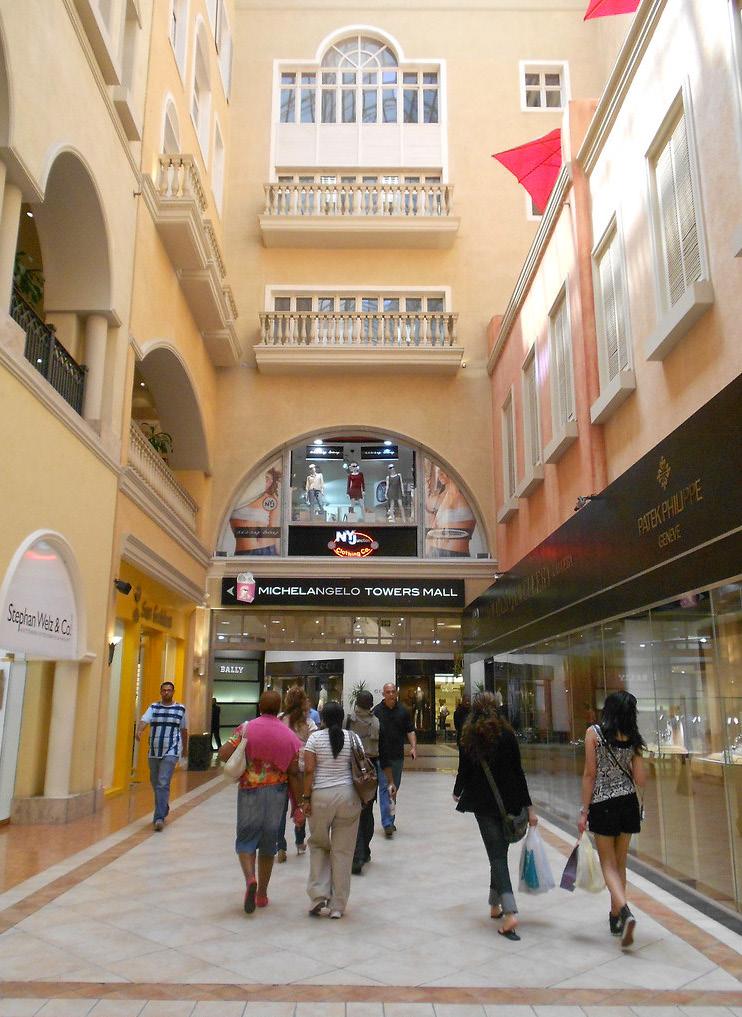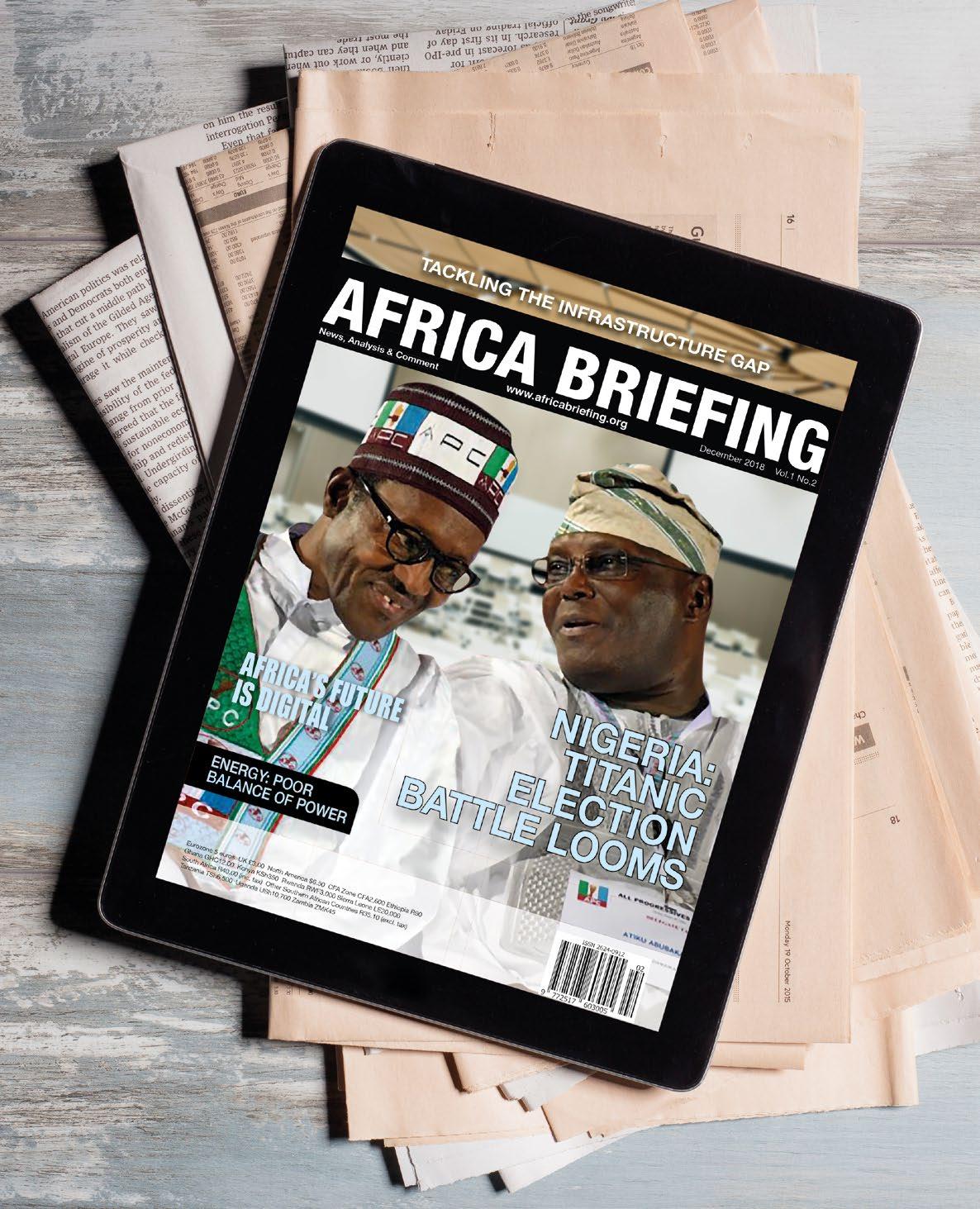










IN a world where headlines come and go with dizzying speed, every so often, a moment arrives that demands pause — not simply because it is unprecedented, but because it redefines what we thought possible. Such a moment belongs to Namibia.

For the first time in its history — and indeed, in the history of the entire African continent — the top three political offices of state in Namibia are now held by women. Not in token roles, not by appointment, and not as a public relations exercise. But by merit, by vote, and by deliberate political design. The presidency, vice-presidency and the speakership of the National Assembly are now occupied by women — a quiet revolution that has thundered across the continent.
Netumbo Nandi-Ndaitwah, a liberation stalwart and career diplomat, has assumed the presidency. She is joined by two other formidable women in Namibia’s highest leadership offices. Together, they are not just making history — they are remaking the architecture of power itself.
This is not a side note. It is a centrepiece. It is a seismic shift in how political authority is imagined and exercised in Africa. As Africa Briefing Contributing Editor Valerie Msoka rightly and strongly puts it in her piece in this edition, this is not about representation alone. It is about redefinition.
Publisher Jon Offei-Ansah
Editor
Desmond Davies
Contributing Editors
Prof. Toyin Falola
Tikum Mbah Azonga
Prof. Ojo Emmanuel Ademola (Technology)
Valerie Msoka (Special Projects)
Contributors
Justice Lee Adoboe
Chief Chuks Iloegbunam
Joseph Kayira
Zachary Ochieng
Olu Ojewale
Oladipo Okubanjo
Corinne Soar
Kennedy Olilo
Gorata Chepete
Namibia’s achievement sends an unambiguous message to the rest of the continent: African women do not just belong in decision-making rooms. They can lead them. They can build them. They can set the agenda for an entire nation — and perhaps, in time, for a continent.
Jon Offei-Ansah Publisher
Desmond Davies Editor
IBut as Valerie reminds us, this moment didn’t appear by magic. It is the result of decades of advocacy, constitutional reform, grassroots mobilisation and sustained political engagement. Namibian women — like many across the continent — have long understood that power is not given. It is claimed. And they have done just that, over many years, in parliaments, party structures, courtrooms, classrooms and cooperatives.
Designer
Simon Blemadzie
Country Representatives
Now, the fruits of that struggle are bearing real, historic results.
n 2018, six of the 10 fastest-growing economies in the world were in Africa, according to the World Bank, with Ghana leading the pack. With GDP growth for the continent projected to accelerate to four per cent in 2019 and 4.1 per cent in 2020, Africa’s economic growth story continues apace. Meanwhile, the World Bank’s 2019 Doing Business Index reveals that five of the 10 most-improved countries are in Africa, and one-third of all reforms recorded globally were in sub-Saharan Africa. What makes the story more impressive and heartening is that the growth – projected to be broad-based – is being achieved in a challenging global environment, bucking the trend.
In the Cover Story of this edition, Dr. Hippolyte Fofack, Chief Economist at the African Export-Import Bank (Afreximbank), analyses the factors underpinning this performance. Two factors, in my opinion, stand out in Dr. Hippolyte’s analysis: trade between Africa and China and the intra-African cross-border investment and infrastructure development.
Deputy Editor
Angela Cobbinah
Stephen Williams Contributing Editor
Michael Orji Director, Special Projects
South Africa
Edward Walter Byerley
Top Dog Media, 5 Ascot Knights 47 Grand National Boulevard Royal Ascot, Milnerton 7441, South Africa
Tel: +27 (0) 21 555 0096
Justice Lee Adoboe
Chuks Iloegbunam
Joseph Kayira
To understand the full weight of this development, it helps to look at the broader African context. Rwanda has long held the global record for female parliamentary representation. Tanzania’s Samia Suluhu Hassan has shown the power of calm and competent leadership in East Africa. Liberia gave Africa its first female head of state in Ellen Johnson Sirleaf. Senegal and South Africa have made consistent gains in gender equity in political participation.
Much has been said and written about China’s ever-deepening economic foray into Africa, especially by Western analysts and commentators who have been sounding alarm bells about re-colonisation of Africa, this time by the Chinese. But empirical evidence paints a different picture.
Despite the decelerating global growth environment, trade between Africa and China increased by 14.5 per cent in the first three quarters of 2018, surpassing the growth rate of world trade (11.6 per cent), reflecting the deepening economic dependency between the two major trading partners.
Zachary Ochieng
Olu Ojewale
Oladipo Okubanjo
Corinne Soar Contributors
But Namibia’s step is unique. Because this isn’t about one breakthrough. It’s about a deliberate, structural recalibration of power — from the margins to the mainstream.
Gloria Ansah Designer
The implications are vast. For every girl in Africa — from Abidjan to Addis Ababa — there is now a living, breathing example of what is possible. And for every political party, parliament and policymaker across the continent, Namibia raises the stakes. Gender equality is no longer a rhetorical aspiration. It is a governing reality. One forged in Africa, by Africans, for Africa.
Empirical evidence shows that China’s domestic investment has become highly linked with economic expansion in Africa. A one percentage point increase in China’s domestic investment growth is associated with an average of 0.6 percentage point increase in overall African exports. And, the expected economic development and trade impact of expanding Chinese investment on resource-rich African countries, especially oil-exporting countries, is even more important.
Country Representatives
South Africa
Edward Walter Byerley Top Dog Media, 5 Ascot Knights 47 Grand National Boulevard Royal Ascot, Milnerton 7441, South Africa
Cell: +27 (0) 81 331 4887
Email: ed@topdog-media.net
Ghana
Nana Asiama Bekoe
Kingdom Concept Co. Tel: +233 243 393 943 / +233 303 967 470 kingsconceptsltd@gmail.com
Nigeria
Nnenna Ogbu #4 Babatunde Oduse crescent
This moment, however, cannot be romanticised. Valerie rightly cautions that the road ahead remains steep. Patriarchal norms, institutional resistance, underfunded campaigns and gender-based violence continue to stifle progress. But Namibia has handed us a blueprint — and blueprints are meant to be built upon.
The resilience of African economies can also be attributed to growing intra-African cross-border investment and infrastructure development. A combination of the two factors is accelerating the process of structural transformation in a continent where industrial output and services account for a growing share of GDP. African corporations and industrialists which are expanding their industrial footprint across Africa and globally are leading the diversification from agriculture into higher value goods in manufacturing and service sectors. These industrial champions are carrying out transcontinental operations, with investment holdings around the globe, with a strong presence in Europe and Pacific Asia, together account for more than 75 per cent of their combined activities outside Africa.
Tel: +27 (0) 21 555 0096 Cell: +27 (0) 81 331 4887 Email: ed@topdog-media.net
Ghana
Nana Asiama Bekoe
The challenge now is to move beyond inspiration to action. Gender parity must translate into policy reform, education budgets, leadership pipelines and economic inclusion. Regional blocs such as the AU, SADC and ECOWAS must move beyond declarations and into enforcement. They must fund leadership training, support electoral access for women, and ensure parity is not an anomaly, but an expectation.
Kingdom Concept Co. Tel: +233 243 393 943 / +233 303 967 470 kingsconceptsltd@gmail.com
Nigeria
Isheri Olowora - Isheri Berger, Lagos Tel: +234 803 670 4879 getnnenna.ogbu@gmail.com
Kenya
Patrick Mwangi
Aquarius Media Ltd, PO Box 10668-11000
Nairobi, Kenya
Tel: 0720 391 546/0773 35 41
A survey of 30 leading emerging African corporations with global footprints and combined revenue of more than $118 billion shows that they are active in several industries, including manufacturing (e.g., Dangote Industries), basic materials, telecommunications (e.g., Econet, Safaricom), finance (e.g., Ecobank) and oil and gas. In addition to mitigating risks highly correlated with African economies, these emerging African global corporations are accelerating the diversification of sources of growth and reducing the exposure of countries to adverse commodity terms of trade.
Taiwo Adedoyin MV Noble, Press House, 3rd Floor 27 Acme Road, Ogba, Ikeja, Lagos Tel: +234 806 291 7100 taiadedoyin52@gmail.com
Kenya
As Valerie powerfully puts it: ‘The question is no longer whether Africa is ready for women leaders. The evidence shows it is. The question is: how fast — and how boldly — will we move?’
This makes me very bullish about Africa!
Namibia has moved. And now, the rest of us must decide whether to follow — or fall behind.

Naima Farah Room 22, 2nd Floor West Wing Royal Square, Ngong Road, Nairobi Tel: +254 729 381 561 naimafarah_m@yahoo.com
Africa Briefing Ltd
2 Redruth Close, London N22 8RN United Kingdom Tel: +44 (0) 208 888 6693 publisher@africabriefing.org
Email: mwangi@aquariusmedia.co.ke
©Africa Briefing Ltd
2 Redruth Close, London N22 8RN
United Kingdom
Tel: +44 (0) 208 888 6693 publisher@africabriefing.org
Double standards of international justice
It’s time to make Africa finally work Leaders must now pursue continental self-interest
Geopolitics and history have taught countries around the world that dependency on others for their survival is a risk that often fails at the worst possible moment, like now when the international order is being upended by Donald Trump. Thus, African countries must immediately begin to take control of their destiny, and to stop being overly reliant on external handouts or favours, argues Desmond Davies
12
Foreign aid and the problems of development
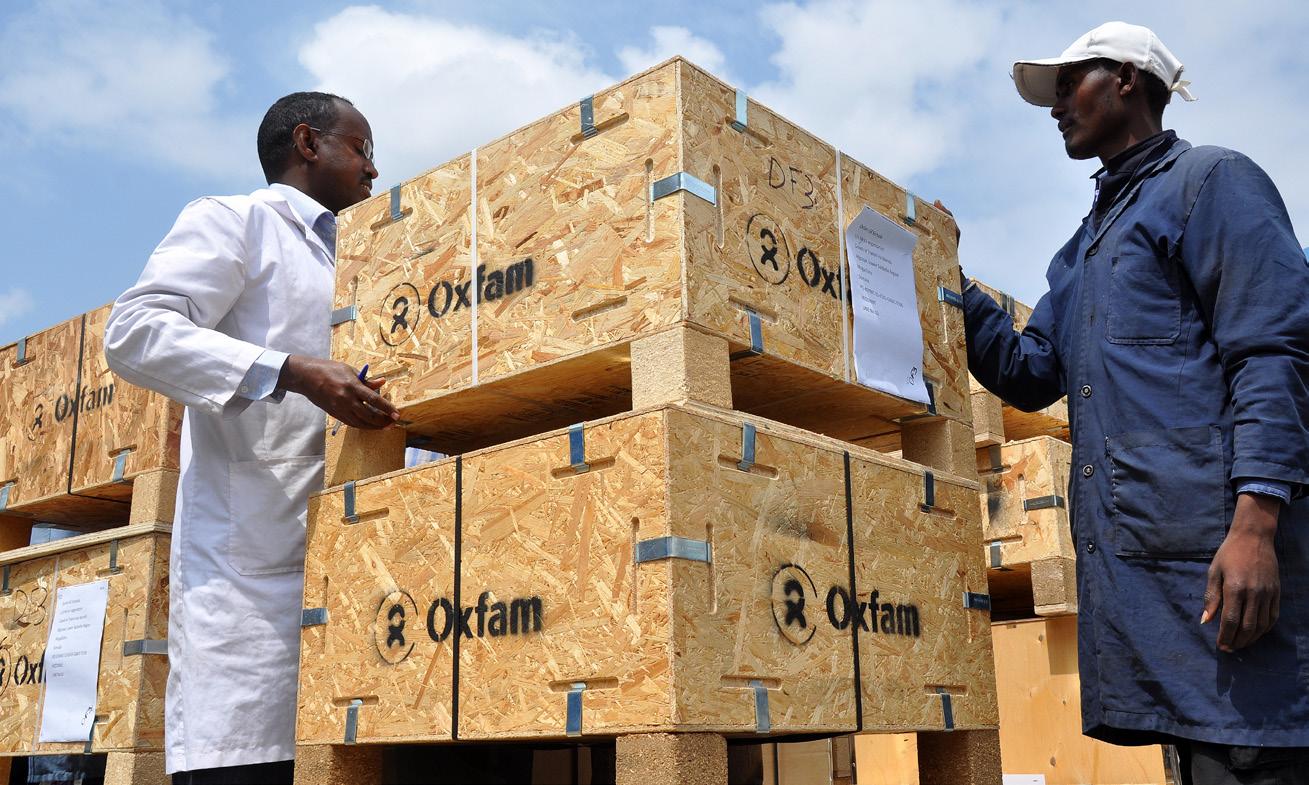
In the wake of swingeing cuts to US overseas development assistance by the Trump administration, Lansana Gberie looks at the state of development through the lens of a veteran in the business
28
Namibia sets pace on women’s leadership
Namibia has made history as the only African nation led by women in its top three political roles—a moment of continental significance, writes Valerie Msoka
Three AU missions, one mandate
This new transition period raises critical concerns about whether it represents a genuine step forward in addressing Somalia's evolving security needs, or simply perpetuates the status quo under a new banner with fewer troops and smaller footprints, writes Janet Sankale
40
Can the budget bring about land justice in South Africa? 6 07 08
Nkanyiso Gumede and Ruth Hall analyse the country’s ongoing land reform policy in line with the 2025 Budget, which is a response to the recent signing of the Expropriation Act
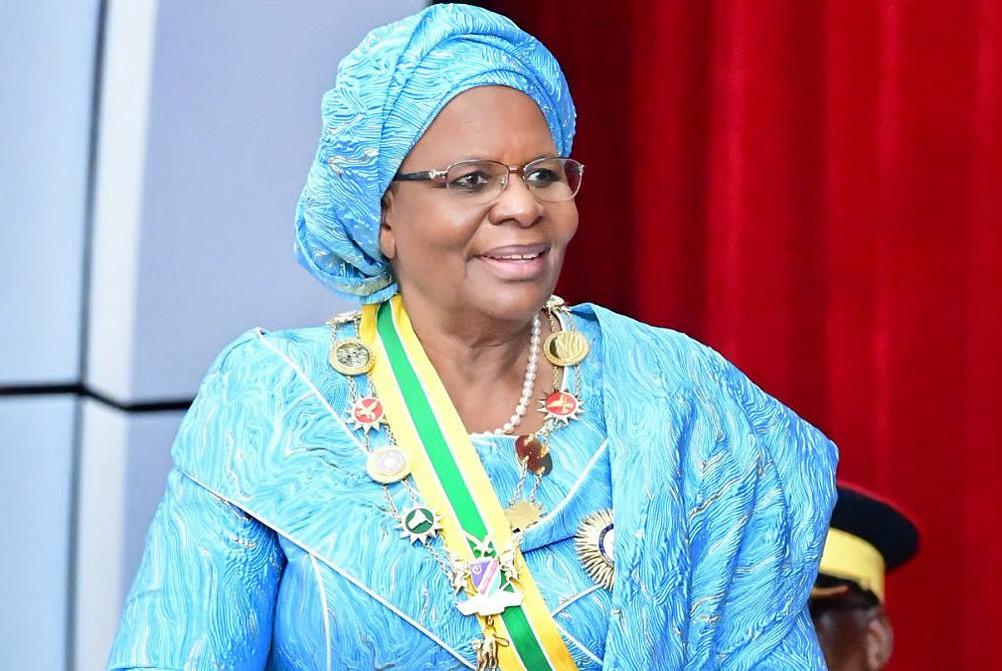
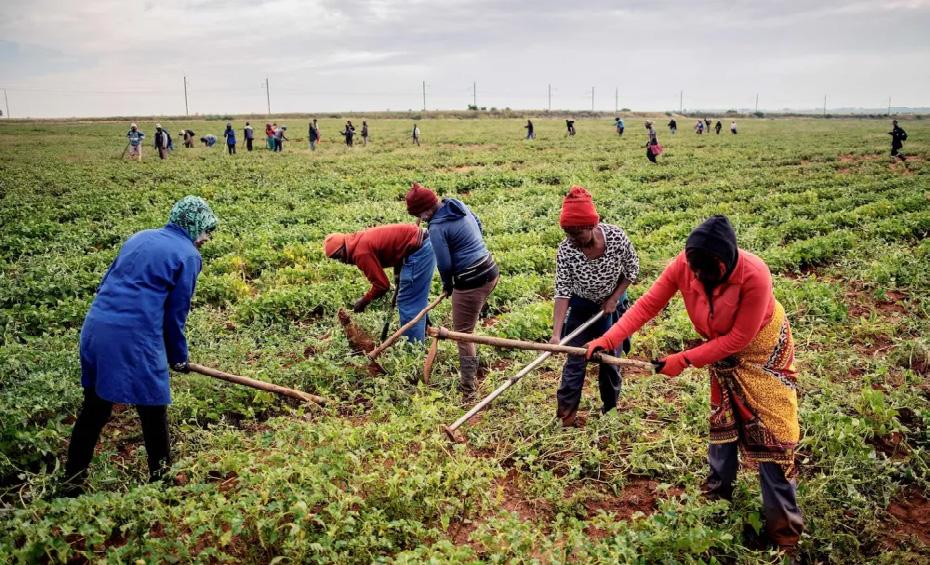
Africa's rare earth boom begins in 2025
Jon Offei-Ansah reports on how 2025 marks a pivotal moment for Africa’s rare earth minerals sector, with the continent on track to supply 10 percent of global demand by 2030
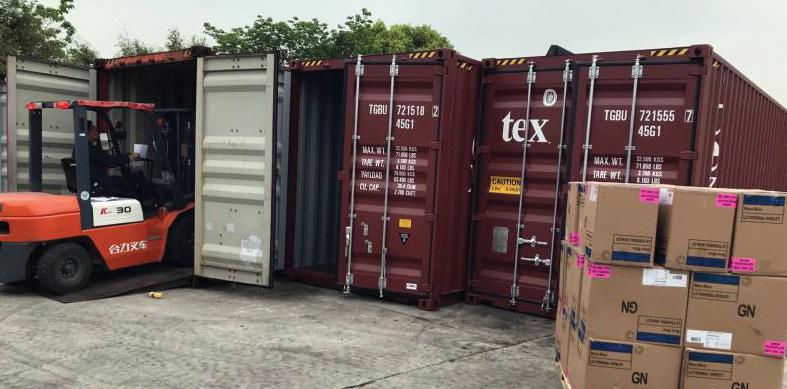
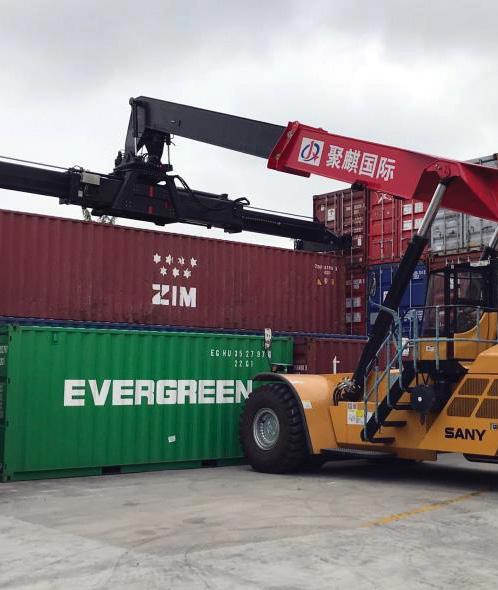
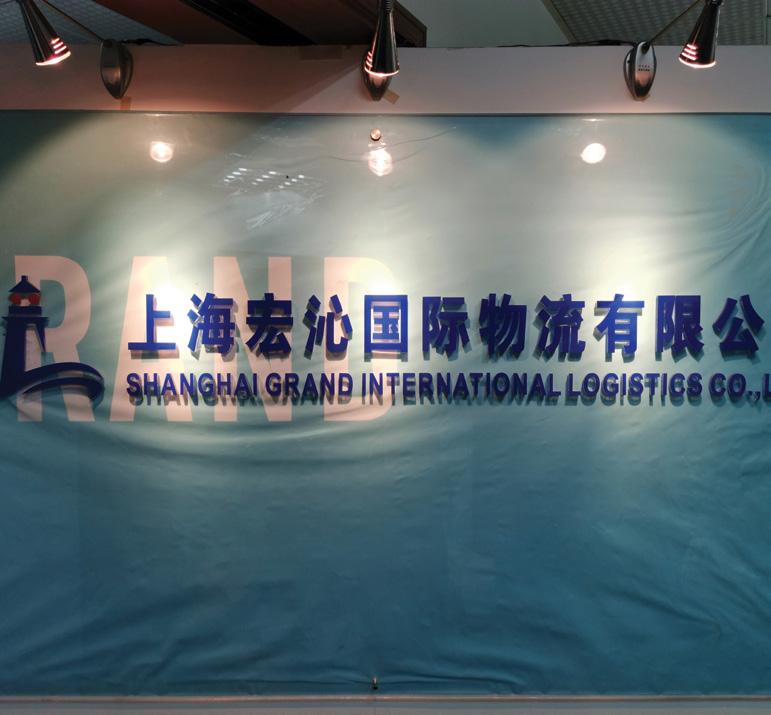
Established in 2002, Shanghai Grand International Co., Ltd. offers a variety of shipping and transportation options via air, sea and ground. Our company is based in Shanghai, China, with branches across the nation. Ranging from customs declaration, warehouse storage, containers and consolidated cargo shipping we have a large array of options to meet your needs.
In addition to being approved and designated by the Ministry of Transportation of China as a First Class cargo service provider, we have also established excellent business relations with major shipping companies including Maersk, CMA, ONE, SM line, and
C.E.O President.
Mr, Felix Ji

EMC over the past 15 years. In addition we have also built long term business relations with major airline cargo departments. In order to expand our global operation, we are looking for international partnerships to work together in this industry. Should you ever import any goods from Peoples Republic of China please ask your exporter and shipper to contact us. We will provide our best service to you.
Room 814, 578 Tian Bao Lu, Shanghai, Peoples Republic of China
E-Mail: felix@grand-log.net phone: 86-13501786280
THE Hague-based International Criminal Court (ICC) has had a torrid time since it came into force on January 1, 2002. Its greatest critic has been the US, which, ironically, played a central role in the establishment of the Rome Statute that created the ICC.
Washington, however, has since then been playing fast and loose with the institution that deals with war crimes, crimes against humanity, genocide and the crime of aggression. While various US administrations refused to cooperate with the ICC, and kept their distance, Donald Trump, in his first incarnation as leader of the US, imposed sanctions on the court and its officials. He has done so again since he began his second term in January this year.
The first time it was Fatou Bensouda. then ICC Prosecutor, who was sanctioned along with her senior members of staff. Now the current Prosecutor, Karim Khan, has come under Trump’s sanctions. Many see the action of Trump 2.0 against Khan and the ICC as the direct result of the arrest warrants that have been issued in relation to the ongoing conflict in Gaza.
The history of moral evasiveness around wartime atrocities, and now the blatant US attack on the ICC, cripples the very institution that could eventually end such impunity. The sanctions by the Trump administration, which include asset freezes and travel bans targeting ICC officials and affiliates, highlight the fact that the ICC is not shielded from a derisive global game of power and manipulation, with no regard for justice.
Enter Russia. Khan managed to indict Putin on kidnapping Ukrainian children from orphanages while Russia claimed they were evacuated from conflict zones. Needless to say, assessing the accuracy and extent of those violations is difficult while military operations continue, and access of journalists and human rights investigators is largely limited in all places including Gaza and Ukraine.
Self-defence and armed response have always been a contested terrain. Israel claims all measures are justified in response to the October 7 attacks which is always distinct from the legality of how one fights.
The actions of the ICC have often come into conflict with powerful countries such as the US when it attempts to exercise its legal mandate, making it difficult for international justice to be effective. Navanethem Pillay, a South African jurist who served as UN High Commissioner for Human Rights from 2008 to 2014, noted all those years ago that it was far from easy to hold those accused of international crimes accountable because gathering evidence was a formidable task.
She noted that most international tribunals were “mired in politics”, more so when it came to dealing with political leaders and high-ranking government officials. According to Pillay, the most powerful nations are reluctant to fight against impunity.
But these same powerful nations, when its suits them, have used the ICC to further their own geopolitical ambitions. For example, the US backed a UN Security Council referral to the ICC to issue warrants of arrest in 2009 and 2010 for then President Omar al-Bashir of Sudan, even though the country was not an ICC member. The Security Council, though, has the mandate to refer cases to the ICC even if a country is not a member of the Court
African countries have also had a fraught relationship with the ICC, accusing it of focusing on the continent. But the atrocities continue.
organisation over the atrocities committed in Tigray and the ongoing violence against civilians in Sudan.
During the Tigray war the then Chairperson of the AU Commission, Moussa Faki, and the High Representative for the Horn of Africa, former Nigerian President Olusegun Obasanjo, and the Ethiopian government used their agency to prevent the activation of the established mechanisms of the African Peace and Security Architecture.
The crimes committed in these conflicts are there for the whole word to see, yet there are very few voices calling for practical steps to bring about justice. No ideology or geopolitical interest justifies impunity, the dispossession of a people or the denial of their right to selfdetermination.
The role of the Western media in selectively focusing and even defending the acts of some states is unprecedented. International humanitarian law makes clear that no cause justifies war crimes –including war crimes committed by the most favoured states.
It is well known that the application of international justice is uneven. It is equally recognisable that the international criminal justice system has particularly failed the victims of atrocities in Africa.
US sanctions notwithstanding,
The African Union has been criticised for what many see as a lack of commitment to its own rhetoric when it comes to taking practical steps to oppose mass atrocities. This critique has been necessitated in no small measure by the truly outrageous silence of the continental
international law must prevail. The Commonwealth Lawyers Association said in its recent statement in relation to Trump’s action: “…sanctioning this entity [the ICC} and its principal officers is a direct attack on that rule of law institution and on the effort to end impunity for these very grave crimes.” AB
FOREIGN direct investment (FDI) and aid are drying up for Africa in the current disruptive global economic environment engendered by Donald Trump in his second term as president of the US. In this climate, it is not right for the continent to continue haemorrhaging much needed money for its development.
Every year, hundreds of billions of dollars flow out of African countries licitly and illicitly. The Indian Gupta brothers, for example, contrived to siphon out of South Africa an astronomical amount of looted funds in a financial crime now being referred to as State Capture.
The brothers are currently safely ensconced in Dubai or somewhere in that part of the world, enjoying their illgotten lucre. South Africa has no hope of recovering the money. Meanwhile, Trump and his enforcer, South African-born Elon Musk, are waging an economic war against the country.
These huge amounts of illicit financial flows from Africa are crucial to
cent. This is what AfCFTA wants to change – to make the continent’s 50odd markets one, just like India’s single market.
These African markets are too small and fragmented to support the sort of investment that is needed to industrialise the continent. African economies are dominated by one-man (or one-woman, for that matter) businesses that rarely pay tax to the government.
Apart from this, the business regulatory system is skewed. For investors (both local and foreign), they have to navigate a minefield dotted with exasperating bureaucratic delays and corruption as they try to establish productive enterprises. Governments now have to re-order their policy frameworks to attract investors to the continent’s manufacturing sector.
In all this, the issue of diaspora remittances to Africa has become paramount. Last year, Africans living abroad remitted almost $100 billion back home, surpassing FDI and aid combined.
Africans no longer need the “almighty dollar” to trade with each other
funding the private sector to make a huge difference to the continent’s manufacturing sector in line with the African Continental Free Trade Area (AfCFTA). It is creating a single market that is expected to boost Africa's economy to a stunning $29 trillion by 2050. By then, Africa’s population is expected to reach 2.5 billion – from its current 1.4 billion – with 66 per cent under the age of 25.
With the youngest workforce of all regions around the world these youngsters have it in their hands to power Africa’s development. This demographic advantage presents substantial economic opportunities, and with AfCFTA fully coming on stream this could boost intraAfrican trade by 50 per cent.
Right now, intra-African is in the region of 14 per cent, and the continent’s contribution to global trade is three per
’
This money now has to be put to work effectively.
Forget diaspora bonds that were floated a while back. Apart from the 2011 flotation that the Ethiopian government used to fund the country’s Renaissance Dam, others have not been so successful. They have underperformed, and lack of transparency has stunted their growth. Some Africans in the diaspora have not had any confidence in government borrowing, such as the experience under the last government in Ghana.
Nevertheless, there is no running away from the fact that remittances are now more crucial to the development of Africa than ever before. However, this funding must go to investing in large scale manufacturing businesses on the continent that will provide bigger dividends for all: flourishing industries; job creation;

more corporate and personal taxation for governments; and dividends paid to African diaspora investors and friends and relatives who normally receive money from abroad.
The African Export-Import Bank (Afreximbank) is on top of things. In conjunction with ARISE Integrated Platforms, it is building industrial parks and special economic zones across the continent to boost manufacturing. And they are beginning to create much needed jobs.
Textile is one sector that is providing 500,000 jobs. Years ago, Africa had a booming textile industry. Then came the Chinese, under-cutting African manufacturers and destroying their businesses.
China, funnily enough, is classed as a developing country under World Trade Organisation (WTO) rules, giving Peking the same preferential status as struggling African countries. So, while China can flood the world market with its products, as per the WTO (not to mention accusations of the use of slave labour), African manufacturers cannot do the same – not even for their local markets.
However, African governments can alter this by focusing on a few important things: assuring members of the African diaspora that the rule of law will protect their investments; and that there is the infrastructure (constant power and transport links) to facilitate competitively priced products that can hold their own against Chinese imports.
The best news of all is the Pan-African Payment and Settlement System that now enables Africans to trade with each other and invest across the continent without having to rely on the “almighty dollar”. Bringing together a growing network of central and commercial banks, payment service providers and other financial intermediaries, the system has simplified the payment landscape so that more Africans can trade with each other.
This is the right approach that will get Africa finally working. AB
Geopolitics and history have taught countries around the world that dependency on others for their survival is a risk that often fails at the worst possible moment, like now when the international order is being upended by Donald Trump. Thus, African countries must immediately begin to take control of their destiny, and to stop being overly reliant on external handouts or favours, argues Desmond Davies
US President Donald Trump telegraphed his intentions about how he would like to deal with African countries when, during his first term in office, he used gutter language to describe the continent. But he did not get a second term to carry out his plans.
However, as soon as he entered the White House at the beginning of this year, he took a wrecking ball to US development assistance programmes in Africa, dismantling the US Agency for International Development (USAID) and Power Africa, among others. The Millennium Challenge Corporation (MCC), which more or less financially compensate African countries for being “good”, is under threat.
If it is any consolation for African countries, they are not the only ones that have come in for stinging criticism and economic threats from the Trump administration. Members of his Cabinet view Europeans as “free-loaders”, depending on the US to do the heavylifting when their continent is under international pressure.
Their Signal messages before the US air strikes against the Houthis in Yemen in March was “inadvertently” sent to a journalist at the Atlantic magazine. VicePresident J.D. Vance wrote that European countries might benefit from the strikes, adding: “I just hate bailing Europe out again.” Defence Secretary Pete Hegseth responded: “VP: I fully share your loathing of European free-loading. It's PATHETIC.”
The Europeans, just like Africans, had taken their eyes off the ball even though
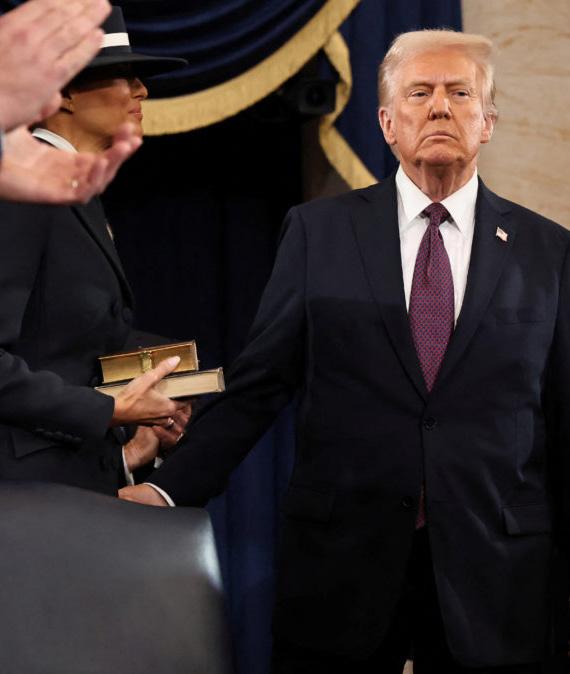
Trump had laid down a marker in 1987 about how he sees foreign countries. Back then, he took out advertisements in three American newspapers, which read: “For decades, Japan and other nations have been taking advantage of the United States. Why are these nations not paying the United States for the human lives and billions of dollars we are losing to protect their interests? The world is laughing at America's politicians as we protect ships we don't own, carrying oil we don't need, destined for allies who won't help.”
He is finally in a position to put things right from his own perspective. However, Europe and Canada – which Trump is threatening to colonise – have the capability to counter America’s economic threats.
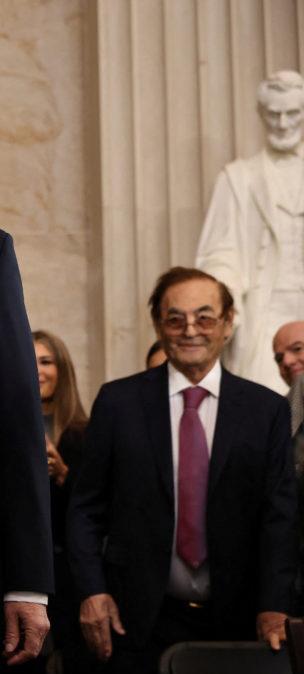
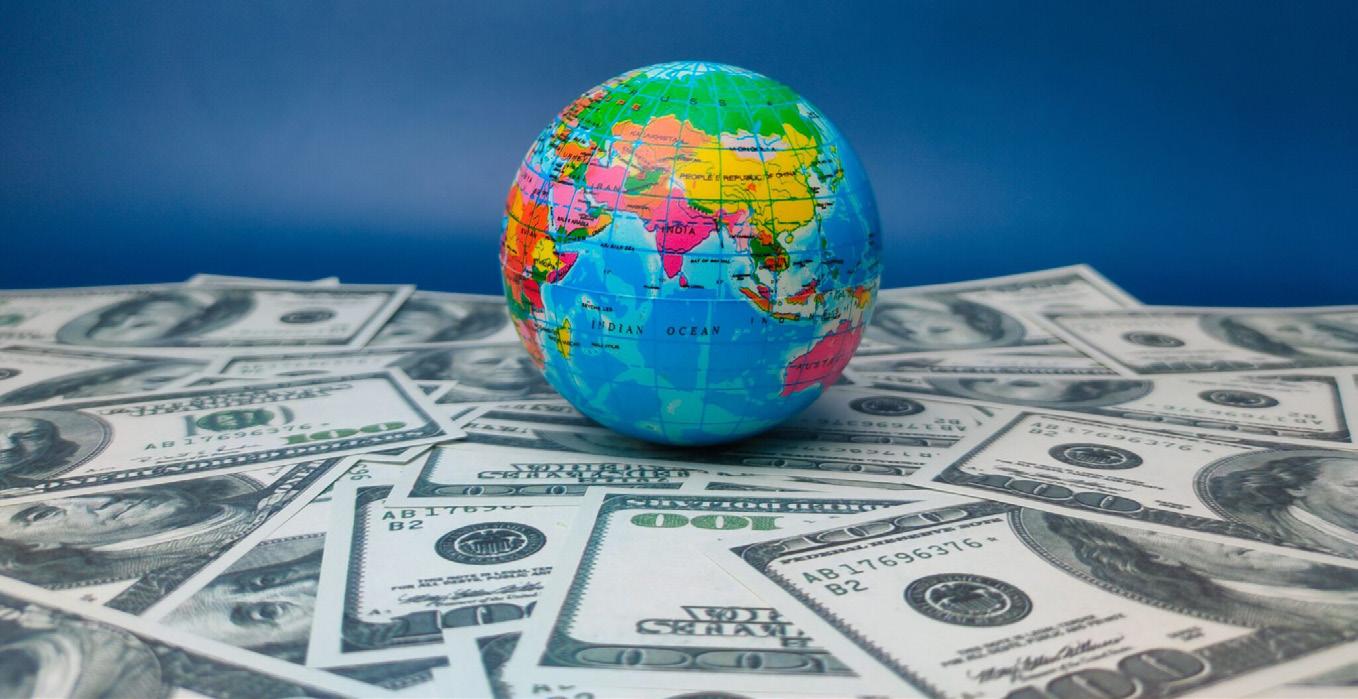
But Africa, it would seem, does not currently have the wherewithal to take on the US, even though the continent has the human and natural resources to help it to become less dependent on others for its survival. This, then, begs the question: might Trump’s global disorder have the salutary benefit of stimulating the growth of a collective African backbone?
It is possible. But the dependency syndrome, which was engendered by
and saying that person should stop feeding the family – and someone else would be responsible for providing food. Eventually, members of the family were being drip-fed to the extent that they all became ill and unable to do things for themselves.
Then came the World Bank and IMF prescribed Structural Adjustment Programmes (SAPs) of the 1980s and 1990s that sapped the vibrant energy of Africa’s economies. It is not for nothing
foreign do-gooders who jumped on the “aid and development” bandwagon to “rescue” a continent that did not need “rescuing” in the early decades of independence, upset the apple cart.
In those years, most African countries were self-reliant when it came to food production. Their governments subsidised their farmers to feed their people – just as Europe and the US did. Enter the Bretton Woods Institutions (the World Bank and the International Monetary Fund). They told African governments to stop subsidies – and the downward spiral in food production began, which is clearly evident today. How can there be food shortages in Africa because Ukraine, which has been battling Russian invaders, cannot produce enough supplies to feed the continent? A continent that has far better weather and soil to feed all of its people.
The withdrawal of food subsidies was akin to someone entering someone’s home
that this era was dubbed the Lost Decade of Development. The 100,000 or so foreign “experts” who were unleashed on Africa wrought a monumental dislocation to the economic development of the continent.
For the legendary Malawian economist, Thandika Mkandawire who died in 2020, this was “an attack on the African state” by external forces. As one of the contributors to the 2004 book, Making the International: Economic Interdependence and Political Order, he wrote: “Africa’s economic decline in the 1980s and 1990s – the so-called ‘lost development decades’ – has been the worst of all major regions of the developing world, and as a direct consequence, Africa has been subjected to much greater external policy interventions than elsewhere.
“Indeed, the multiplicity of external and internal social actors in African governance points more sharply than anywhere else in the developing world to
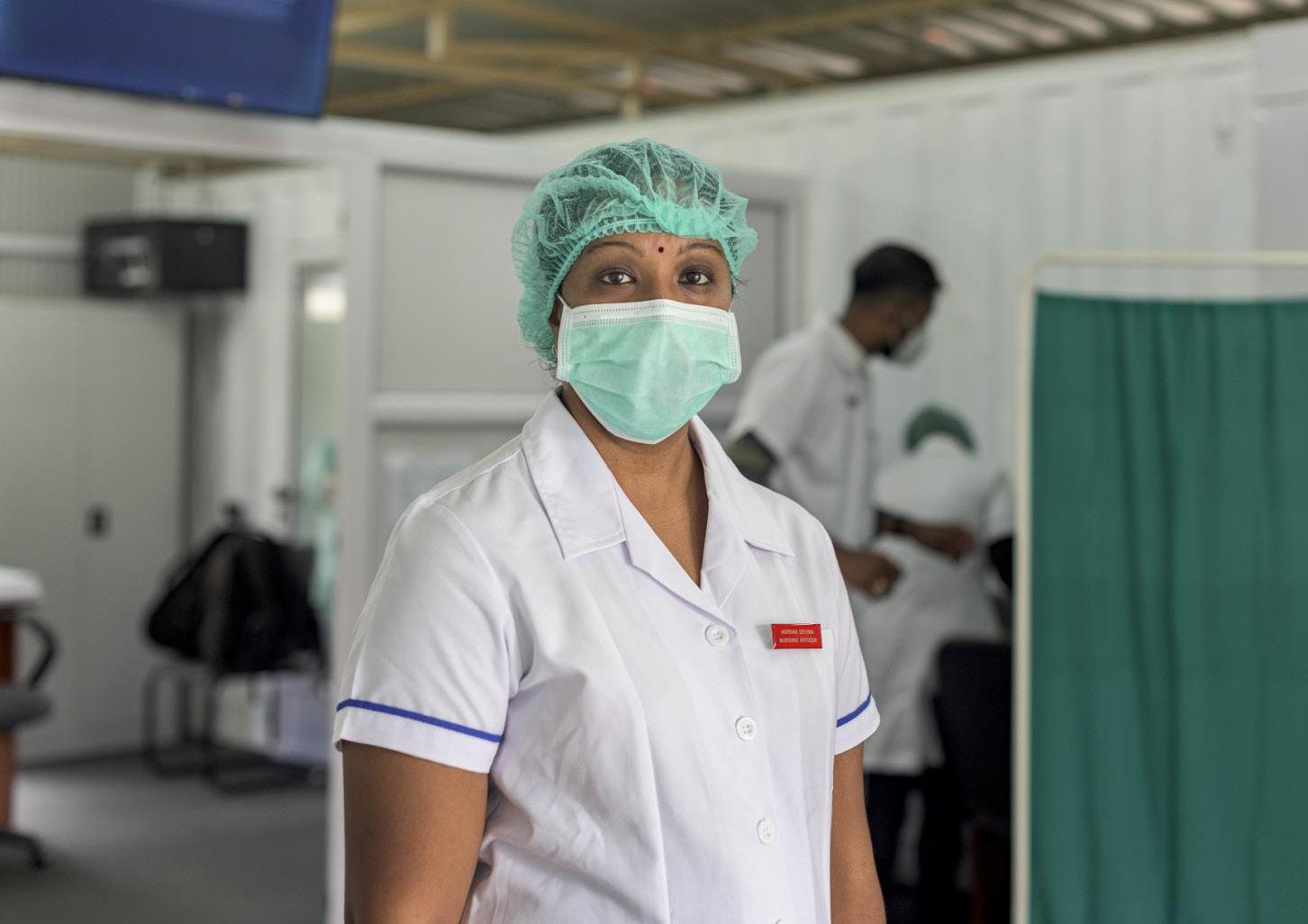
the complexities of reconciling national efforts with international cooperation. International institutions such as the International Monetary Fund and the World Bank, and powerful Western states have argued in this period that African developmental states are an impossibility and foreign advisers have assumed political and managerial roles that would be unacceptable in much of the rest of the world.”
Mkandawire continued: “The extreme nature of the international intervention in Africa provides insights into the construction and destruction of state capability which have wider application across the world. The political conditions…have encouraged irresponsible experimentation with different policies and strategies in Africa, an experimentation that has amounted, at times, to a confiscation from outside of the ability of national states to define their own role and to give expression to the political community they represent.”
Over the ensuing years, African governments have tried to reshape the future of their countries in the manner they want. It has been slow going but it is now clear that this momentum must be speeded up.
Africans must end the dependency syndrome that forces them to neglect their countries in favour of those overseas. How, for example, can wealthy Nigerians (most of whom are politically exposed persons, anyway) explain owning property worth $500 million in Dubai? How can they also explain spending $1.1 billion annually on health tourism? Or how can they explain taking $2.5 billion out of the country in 2021, according to the Central Bank of Nigeria, to support 120,000 students and dependants privately studying and living in the UK?
However, financial institutions such as the African Export-Import Bank (Afreximbank) are changing things. It is set to launch a multi-million dollar 500-bed state-of-the-art hospital in Abuja, Nigeria,
which will be replicated across Africa to boost healthcare on the continent.
It is part of Afreximbank’s African Medical Centre of Excellence (ACME), in conjunction with King’s College London, which will serve as a pilot project for a continent-wide healthcare project, with an initial focus on East and Central Africa.
A healthy workforce in Africa makes for sanguine economic prospects for the continent. For now, Africa, with a population of 1.4 billion, is home to 17 per cent of the world’s population, with projections for this figure to double by 2050.
Yet, coverage of essential healthcare services is woefully low, with only 48 per cent of the people able to access such basic necessities for their wellbeing. This means, more than 600 million Africans are excluded from the formal healthcare system. Africa is estimated to have less than two healthcare professionals per 1,000 people, against the World Health Organisation’s recommended ratio of at
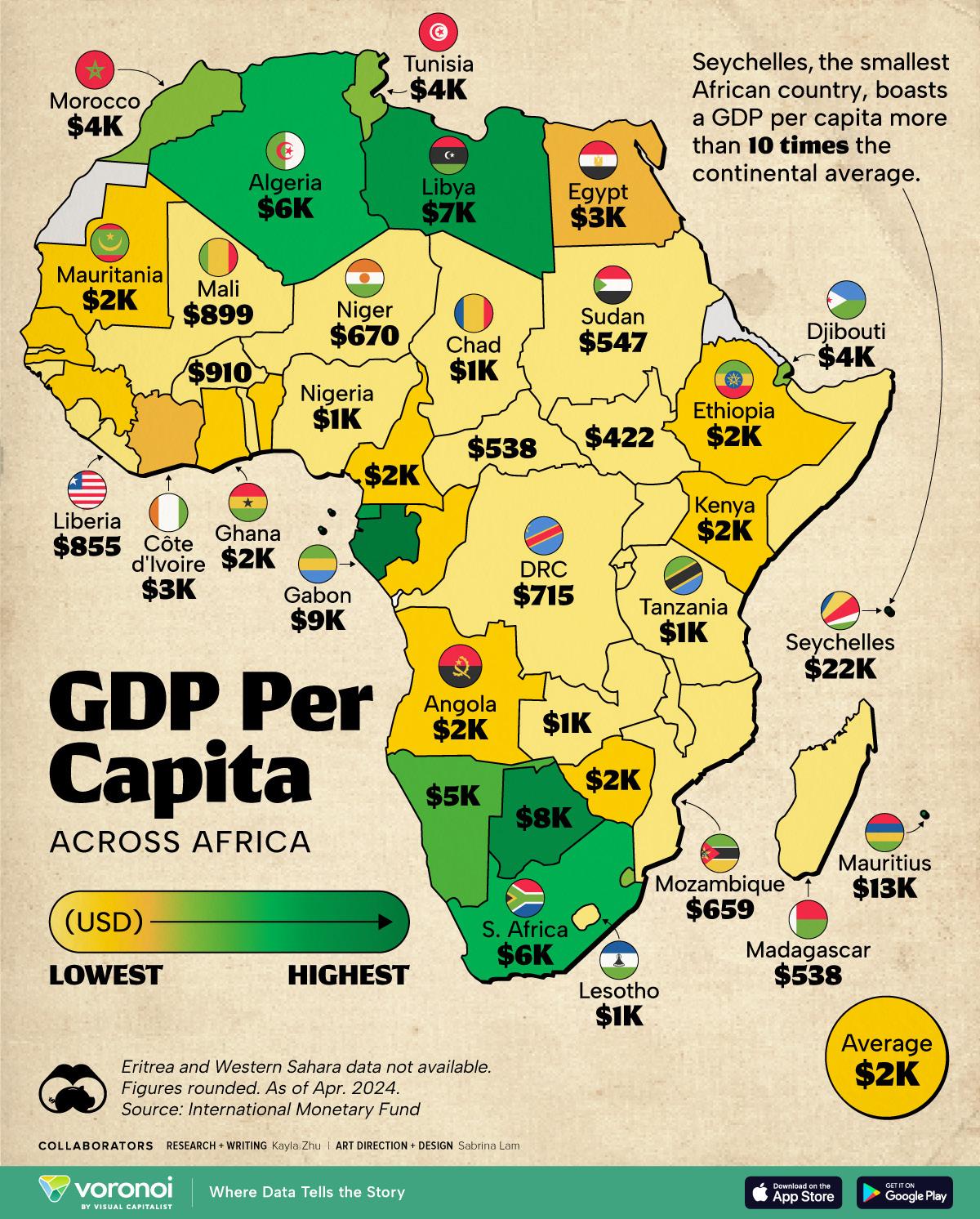
least four per 1,000.
As such, some 80 per cent of the African continent is currently experiencing medical staff shortages, due to high rates of healthcare professionals leaving to work in other countries. The WHO estimates that the shortfall in healthcare workers will reach about 6.1 million by 2030.
Prof Benedict Oramah, President and Chairman of the Board of Directors of both Afreximbank and AMCE, is upbeat about the collaboration with King’s College. Indeed, it is such collaborations that African countries and institutions must now be looking to in order to bring about the desired changes to the continent.
“The African Medical Centre of Excellence represents a defining moment in Africa’s pursuit of self-sufficiency in healthcare,” Oramah explains. “For too long, our continent has borne the heavy burden of non-communicable diseases,
capital flight from medical tourism and the exodus of skilled professionals seeking opportunities abroad. AMCE is set to change that narrative.
redirecting those resources towards strengthening our own systems.”
He added: “This initiative is more than an investment in infrastructure; it is an investment in Africa’s future. Through strategic partnerships with governments, international stakeholders and the private sector, we are demonstrating that Africa has both the ambition and the capability to provide world-class healthcare for its people. The AMCE is not just a medical facility; it is a statement of intent, a symbol of progress and a beacon of hope for a healthier, more self-reliant continent.”
This initiative should start to compensate for the cuts the Trump administration is making to support for healthcare in Africa. Where there is a will, there is a way, going by the Afreximbank’s robust financial backing for healthcare in Africa. The bank provided $2 billion for the purchase of covid vaccines during the pandemic.
Such funding must now be taken further. So, instead of South African President Cyril Ramaphosa complaining about “vaccine apartheid”, his government should strongly support his country’s excellent scientists, using South Africa’s world-class research centres, to come up with vaccines for diseases that are endemic in Africa.
This self-reliance can be replicated in almost every sector in Africa to make the continent less dependent on outside assistance. Ironically, Trump’s dislocation of the international order is a good opportunity for African countries to begin to get their act together, start to control their destiny and to no longer overly rely on external handouts or favours.
“By delivering world-class, lifesaving care to over 350,000 patients within its first five years, this facility will ensure that quality healthcare is no longer a privilege reserved for those who can afford to travel overseas. It will create 3,000 jobs, stimulate intra-African trade in medical services and strengthen critical supply chains in pharmaceuticals and healthcare delivery. “Most importantly, it will help Nigeria retain the over $1.1 billion lost annually to outbound medical tourism,
Geopolitics and history have taught countries around the world that dependency on others for their survival is a risk that often fails at the worst possible moment – like now. Indeed, as I have said over the last 30 years – and will continue to say so – the world does not owe Africa a living.
No country in the world has ever developed by expecting outsiders to do the job. This is the challenge facing the continent in the era of Trump.
In the wake of swingeing cuts to US overseas development assistance by the Trump administration, Lansana Gberie looks at the state of development through the lens of a veteran in the business
IAN Smillie, a Canadian with 50 years’ experience of development work, writes in his absorbing and insightful memoir* in 2024 that “development” is “an imprecise and much abused word whose meaning will, I hope, become clear as the clouds unfold”. But this is a retrospective judgment.
Smillie was himself quite clear about its meaning when, just out of university, he started out as a very young Canadian volunteer schoolteacher in rural Sierra Leone. This was in 1967. Sierra Leone had gained independence from Britain six years earlier. Its needs were immense.
Kono, the last of the frontiers of colonial penetration, opened up only after diamonds were discovered there in 1930, to be followed by a chaotic rush of speculators, heavy-footed colonial police, Lebanese smugglers and illicit –sometimes – violent diggers. The building of schools and other social services was scarcely considered. Smillie had offered himself, through Canadian University Service Overseas (CUSO), to teach at the first secondary school in Koidu town started a few years earlier by a 30-year-old Englishman, T.C. Bartlam.
It was a heroic threadbare affair, but with the infusion of foreign volunteer teachers – there were also a few from the Peace Corps and only two Sierra Leoneans – it thrived, producing bright students who later went on to become teachers (out of admiration for the volunteers) and other professionals.
Diffident, concerned only with teaching school and making himself at home far away from home, Smillie, at this point, did not think of himself as a development worker, still less as a development specialist or professional. But development work was
exactly what he was doing.
Development then had a limited and useful meaning. It was the decade of independence in Africa, and most of the emerging countries had few university graduates or trained professionals. The newly-built schools were dependent on foreign volunteer teachers, and the government, Smillie notes, was eager to
expand such facilities as quickly as possible – relying, of course, on those outsiders.
CUSO was established in 1961, a year after President John F. Kennedy founded the Peace Corps, to respond to such needs. The great handicap to building new schools and opening new clinics and staffing agricultural extension services and even government departments, Smillie writes,
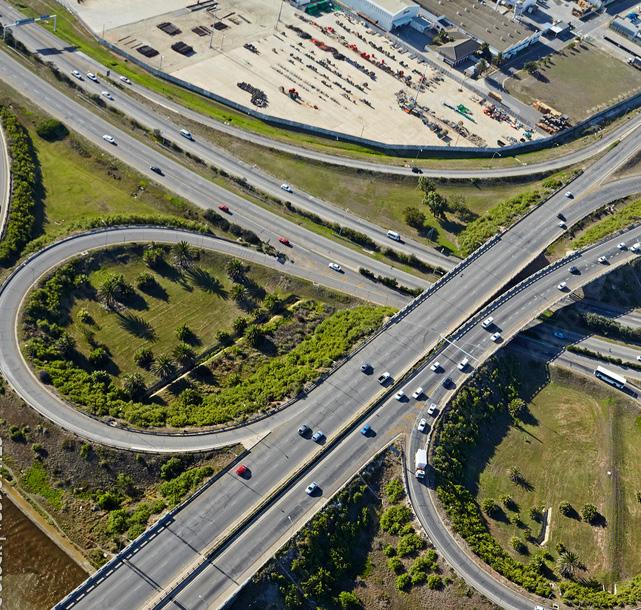
was “the simple lack of trained people”.
Development meant making available those trained personnel, funded by their overseas governments. This was foreign aid, pure and simple. The success of that programme can be measured a posteriori: none of these countries now need foreign teachers; indeed, the challenge is to provide jobs for the teachers they have trained. Those countries, however, had other pressing needs.
Smillie, only 22, had only his McGill university degree, his experience as a boy scout and a snake bite kit. Still, he had read the pioneering work of Barbara Ward, The Rich Nations and the Poor Nations, after hearing it praised by US President Lyndon Johnson. In it, Smillie learnt a lot about poverty and global inequality, and even more about the obligations of rich nations to help the poor out of their dereliction. But Ward told him nothing about Sierra Leone as a country.
When he got to Sierra Leone, he was taken by a small-gauge train from Freetown to Kenema, and then packed into an
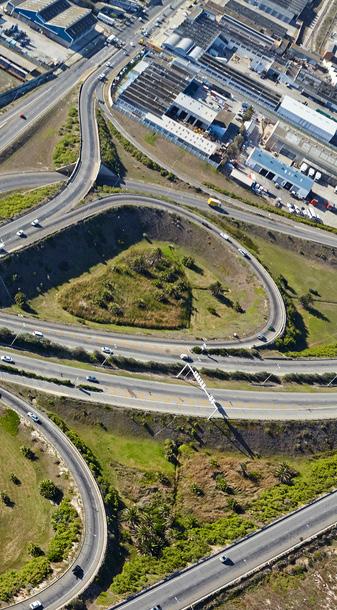
overcrowded “comfort bus” – doubtless so named because it lacked precisely that quality – which took seven to eight hours to “traverse 130 tortuous kilometres through thick jungle on a road that alternated between broken rocks and long stretches of laterite mud so deep the passengers had to disembark twice to push the bus out of it”.
At this point, Smillie was convinced that he had embarked on a journey without maps, though, despite his adoration of Graham Greene, the English writer and journalist, his Liberian travelogue was not one of the books he had packed in his knapsack. The high-mindedness is not affected; I have known Smillie for 25 years and can testify to the purity of his commitment and dedication.
The need for development in Africa, Asia and Latin America was clear: it was the need for good roads, decent housing, food, proper hygiene and sanitation, transportation and everything that supports modern standards of living: the lack of them was underdevelopment. African, Asian and Latin American states simply did not have the wherewithal to provide those things. Assisting them to do so was foreign aid – helping those countries develop. Today, terms like “development” and “underdevelopment” are being frowned upon in some quarters: there is a preference now for “high-income” and “low-income” countries, though what these terms really mean is unclear. (There are countries in Africa with high GDP but are still underdeveloped.)
Memorable events happened while Smillie was in Sierra Leone: a coup, a countercoup and the reestablishment of constitutional rule with the elevation of Siaka Stevens, who turned out to be the disaster that would destroy that democracy and reverse much of the gains the country had made. It is part of the charm and merit of Smillie’s account that, reflecting his lack of political perspective or consciousness as a youthful provincial schoolteacher, he writes about these events as distant and irrelevant rumours. Only after Smillie’s visit to Freetown and his mistaken arrest as a “mercenary” did he begin to understand the implications of the disturbances.
This experience, it turned out, was merely for practice: after Smillie was next posted to Nigeria, he encountered a fullblown civil war, following a bloody coup and ethnic massacres seen by many as an incipient genocide. But Nigeria is a much larger country; and posted to its northern
half, with frequent visits to the west of the country – both of them unaffected by the fighting – Smillie’s understanding of the great events happen slowly, almost by accretion based upon his involvement in relief activities and his direct contact with refugees fleeing the fighting and some of the leading players.
In Ibadan, the largest city in western Nigeria, he meets with Colonel Olusegun Obasanjo, who would lead the Nigerian forces to victory over the secessionist Biafra, and with the writer Wole Soyinka, who got Smillie a cameo role in Kongi’s Harvest, his celebrated play that was made into a film by the pioneering African American filmmaker Ossie Davies.
His account of Nigeria suggests the development of some kind of political anxiety, centred on the role of emergency assistance or aid, and on larger issues involving foreign involvement in poor countries. The process is slow and understated, but discernible – again, attesting to the integrity of Smillie’s faithful record.
He describes the massive relief efforts mounted for Biafra by Western governments as “an act of profound folly” that helped prolong the doomed Biafra war effort and may have contributed to the death of at least 180,000 people in that rebel country. Worse, it was based upon a completely false, even misleading, supposition that the Nigerian forces fighting to subjugate Biafra were genocidal and meant to wipe out the Igbo people.
At the height of that war, the famous British scholar, Margery Perham, who had been an outspoken critic of the Nigerian military, voiced a similar sentiment in a broadcast to Biafra; but with the rebel state defended by such luminaries as Chinua Achebe and their eloquent, but profoundly roguish leader, Chukwuemeka Ojukwu, the obvious fact that Biafra could not be saved and that the wobbly Nigerian federation was anything but genocidal, was ignored by enthusiastic do-gooders.
Smillie’s work took him almost everywhere in the developing world, to Pakistan, Kenya, Ghana, Zambia, Zimbabwe, Guyana, the Caribbean, often on short-term assignments. This was partly the result of marital life, which also gave him the time to reflect, in books, on various aspects of development he saw critical to breaking the poverty trap in those countries. The Land of Lost Content: A History of CUSO (1985) was a study of his
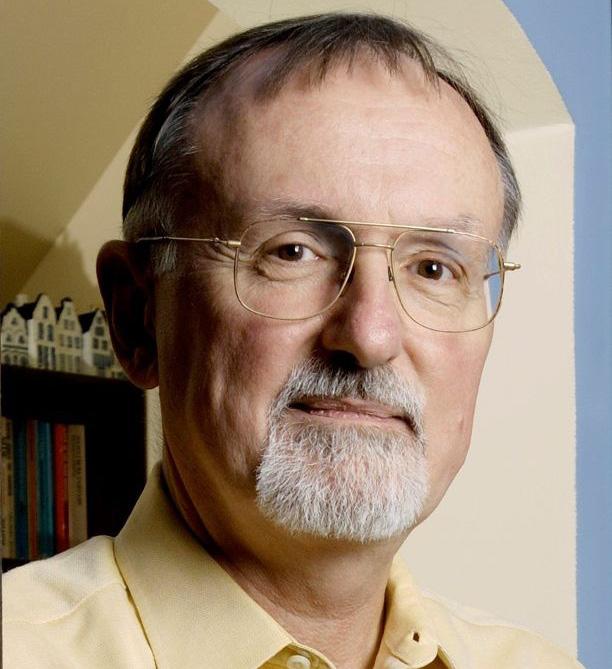
first employer. A year later, he published No Condition Permanent: Pump Priming Ghana’s Industrial Revolution (1986), which grew out of Smillie’s interest in intermediate technology, a sentiment that developed from the ideas of Fritz Schumacher, an economist and philosopher. It became an influential force in the 1960s following the establishment of the Intermediate Technology Development Group (ITDG), now called Practical Action (the publisher of this book) in Britain.
Smillie had become convinced that without a capacity for light engineering and productive enterprise, development would remain illusory. He revisited the issue five years later in Mastering the Machine; Poverty, Aid and Technology, published in 1991.
Intermediate technology was most extensively tried in India, drawing the ire of the dyspeptic VS Naipaul, who in 1976 described it as a cult centring on the bullock cart: “The bullock cart is not to be eliminated; after 3,000 or more backward
years Indian intermediate technology will now improve the bullock cart.” Naipaul believed that the idea, flowing from romantic doubts of people in the developed world about the industrialisation which they continued to cherish and rely on, was meant to perpetuate Indian backwardness: “Shouldn’t intermediate technology be concentrating on that harmless little engine capable of the short journeys bullock carts usually make?”
In Smillie’s more knowledgeable and sympathetic account, which focuses on the Suame Magazine in Kumasi, Ghana, the idea is far more attractive, though the result was none the happier. Suame Magazine, then and now, is one of the biggest open-air informal industrial areas in the world, with around 40,00 workers. (When I visited there in 2006 while living in Ghana, I was told that employees there numbered over 150,000, but this might have been exaggeration due to local vanity).
Smillie gives considerable space to Suame Magazine, clearly laying out its
foundational idea, driven by John Powell, a young British mechanical engineer. By the early 1980s, the Ghanaian economy had collapsed: it was no longer able to import spare parts and simple tools. Powell set to work with his team, to produce glue, dehydration equipment for cattle feed, bread-making equipment, a broad loom for weavers – all an aspect of intermediate technology.
The effort was rudimentary. A large part of the undertaking at Suame was vehicle repairs; there was no manufacturing. “There were two basic problems,” Smillie writes. “The first was about machines. Although there were lathe operators in Suame, there were no milling machines. This halted the project before it started.”
Powell was undaunted. He “identified four stages of technology in moving from a culture of repair to one of making things. The first and most basic stage is characterised by the use of hand tools designed without reliance on scientific principle. In the fourth, scientifically designed automatic machinery is not only in use, it can be locally developed or adapted. Although much of Africa was in stage one, governments, donors and multinational investors focused on jumping straight to four”.
Predictably, the result of Powell’s experiment was “a parody of stage four”. Nothing was developed indigenously; and at Suame, iron casting, which is the primary basis of manufacturing, was unknown until it was developed much later – perhaps the most significant outcome of Powell’s effort, though this “was almost a backyard technology in Asia”.
Towards the end of his book, Smillie, now a grizzled veteran, returns to Sierra Leone. It was not a happy moment. A brutal bush war, starting in 1991, had devastated the country; Kono, the diamond-rich district that provided Smillie’s first home in Africa, had become the epicentre of the conflict by the time he visited in 1995; the school Bartlam built had been destroyed.
The issue was no longer “development”; it was ending the war. Working with others – including this writer – Smillie embarked upon an inquiry to understand the forces driving the war. Predatory diamond hunters and gunrunners were identified as the extremely destructive forces; a foreign dictator, President Charles Taylor of Liberia, was the magnet drawing them in and reaping the spoils.

Suame
Smillie’s effort contributed massively to two important developments, which helped end the war and eased the peacebuilding process: sanctions on Taylor’s Liberia and the creation of the Kimberley Process. The United Nations intervened with a massive force, helping to disarm thousands of combatants and extending the writ of state once terrorised by the Revolutionary United Front rebels. The UN and Sierra Leone created a special war crimes court to try those bearing the greatest responsibility for the war and its atrocities, including Taylor, who was tried and convicted.
Smillie had made an effective
informal industrial areas in the world
Leone’s traumatic peace process”. A US Senator and two congressmen nominated Partnership Africa Canada, through which Smillie coordinated the campaign, and Global Witness, a British NGO which had first raised the issue of conflict diamonds, for the Nobel Peace Prize, a triumphant bookend to a gruelling campaign.
No one can argue, Smillie has written elsewhere – in response to veteran foreign aid sceptic William Easterly – that poverty “isn’t a staging ground for all manner of trouble with broad international implications: health pandemics, environmental degradation, refugees. And
Today, terms like “development” and “underdevelopment” are being frowned upon in some quarters ‘ ’
opening case in the court against Taylor, a triumphant moment – and Sierra Leone’s president, Ahmad Tejan Kabbah, wrote to him and his colleagues at the forefront of the campaign against conflict diamonds recognising their “crucial role...in Sierra
in societies where people are hungry, some – angry young men mostly – are prone to join groups fighting against perceived oppressors”. He then mentioned as an example the lesson from the fate of “the
Bourbons and the Romanovs… as they toppled into their graves”. A more accurate historical reference would have been a more recent one, the one Smillie is most familiar with: Sierra Leone.
But does aid actually work to reduce or eliminate poverty and to facilitate development? Smillie’s reflection on this issue in the chapter entitled “The Obsessive Measurement Disorder” is the best case for foreign assistance I have read; it should be circulated widely.
He had earlier referred to the work of Barbara Ward, who in the 1960s had called for a New Marshall Plan and rejecting “patchy development” assistance as insufficient for sustained growth. Ward suggested that rich countries devote one per cent of their national income to assist poor countries, noting that if they persisted in “their parochial self-interest,” the world was heading “not simply towards great disappointments, but towards disaster and tragedy as well”.
A similar case was made more forcefully by a World Bank report authored by former Canadian Prime Minister Lester Pearson, Partners in Development, published in 1969. The report emphasised funding for universal primary education, support for health sectors and nutrition, importance of increased global food production, and deplored the debt burden
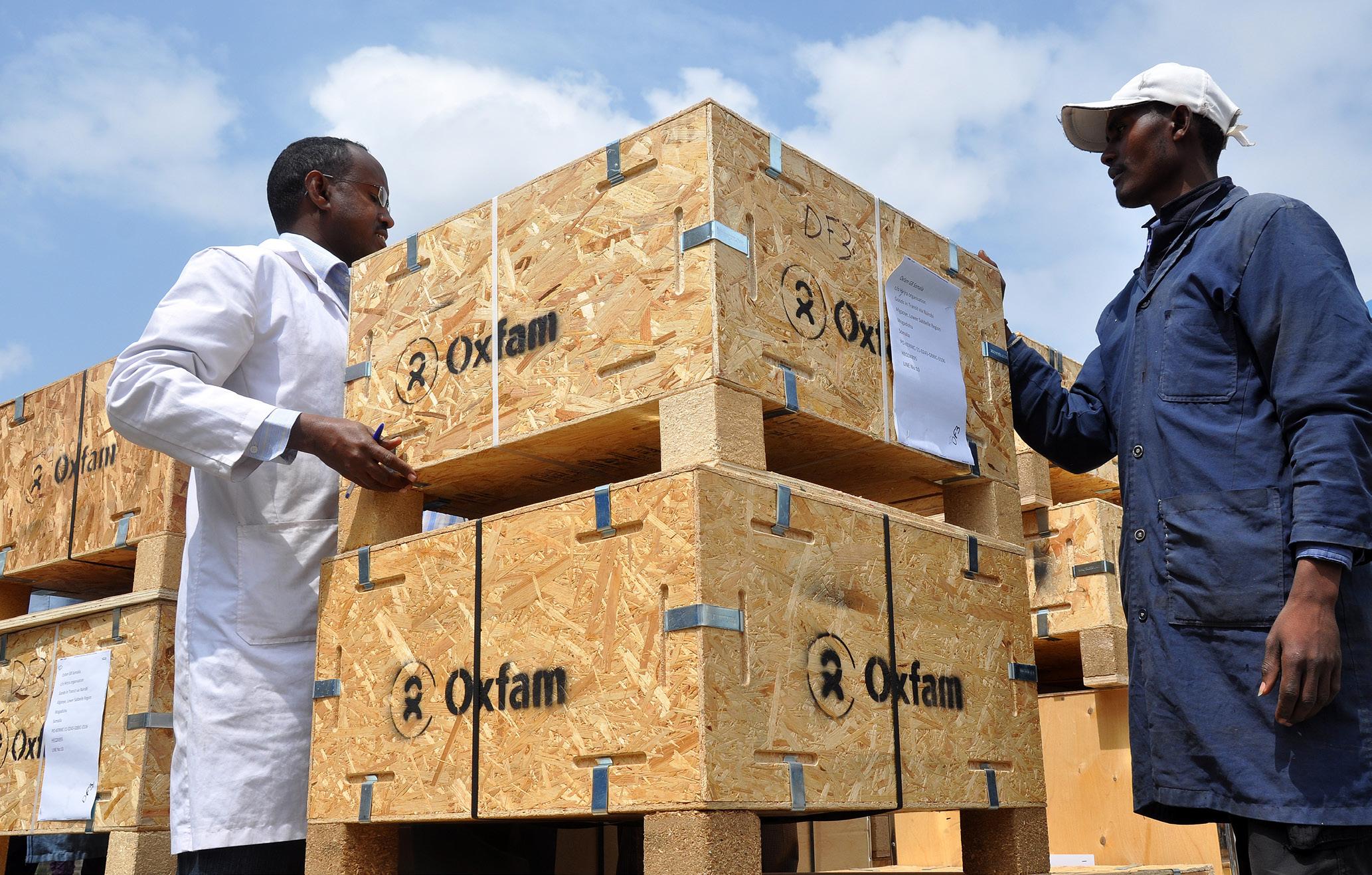
on poor countries.
It advocated trade liberalisation, which “implies a willingness on the part of the industrialised countries to make the structural adjustments which will enable them to absorb an increasing range of manufactures and semi-manufactures from developing countries”. However, Smillie lamented, “the polar opposite” was what came to pass: “a requirement that developing countries open their economies to the manufactures” of the rich industrialised world, “while swallowing medicine that weakened their abilities to invest in the education, health, infrastructure and research required for competition in the global economy”.
The response to underdevelopment, he writes, “is not one thing”: it should include aid, foreign direct investment, trade, access to markets and good government. Smillie notes that most of the money earmarked by the rich world for development does not leave those countries: for example, money for refugee resettlement in the West, a sizable chunk, is listed as foreign aid.
None of the major economies has come close to meeting Barbara Ward’s recommendation to devote one per cent of their national income to assist poor countries. So, in response to the question “does aid work”, Smillie writes: “A partial
aid, because they often merely function as long-distance welfare payment to family members for their upkeep: they do not build clinics and schools.
In the wake of the announcement
answer has to be: how would anyone know? There has been so little of it, and so much has been confused with other things that any serious attribution is impossible.”
Nor is the headline grabbing issue of remittances of much help: of $501 billion recorded as remittances in 2019, he writes, only 4.3 per cent went to least developed countries. Remittances are no substitute for
by the Trump administration that it was axing USAID (United States Agency for International Development), a giant in the international assistance and development effort, in retirement, Smillie must view this development more in sadness than in anger – particularly as Trump has also vowed to end the sovereignty of his beloved Canada, a throwback to ideas of a different century.
Dr Lansana Gberie is Sierra Leone’s ambassador to Switzerland and Permanent Representative to the UN Office in Geneva. *Under Development: A Journey Without Maps, by Ian Smillie (London: Practical Action Publishing, 2024), 274 pages.
As the actions of the unilaterally protectionist Donald Trump begin to have a deleterious impact on global trade relations, Adekeye Adebajo looks at how South Africa fits into all this, having taken over the one-year rotating presidency of the G20 in December 2024 as the bloc’s first African host
CHINA has become the “workshop of the world”: its $18.5 trillion economy is the globe's second largest, more than that of all 27 European Union (EU) countries combined, while Beijing is the largest trading partner of over 120 countries. But the US remains the world’s largest economy at $28.7 trillion, accounting for 26 per cent of global output.
Three of the original BRICS (Brazil, Russia, India, China and South Africa) countries – China (second), India (fifth), and Brazil (eighth) – are now among the
world’s 10 largest economies, with all five also belonging to the Group of 20 (G20) leading economies.
South Africa – already Africa’s most industrialised country - will regain its position as its largest economy in 2025. Its participation in BRICS and the G20 has been based on pursuing its “African Agenda” of fostering economic cooperation with the continent and other developing and rich countries.
BRIC (Brazil, Russia, India, and China) governments met for the first time in New York in September 2006, before
holding their first summit in Yekaterinburg, Russia, in June 2009. After energetic diplomacy by President Jacob Zuma, South Africa was invited to join the grouping in December 2010, attending its first meeting in Hainan, China, in April 2011, thus transforming BRIC into BRICS.
The G20, for its part, accounts for 85 per cent of the global economy, 75 per cent of international trade and two-thirds of the world’s population. Founded in September 1999 to promote global financial stability through cooperation among the world’s most important economies following the
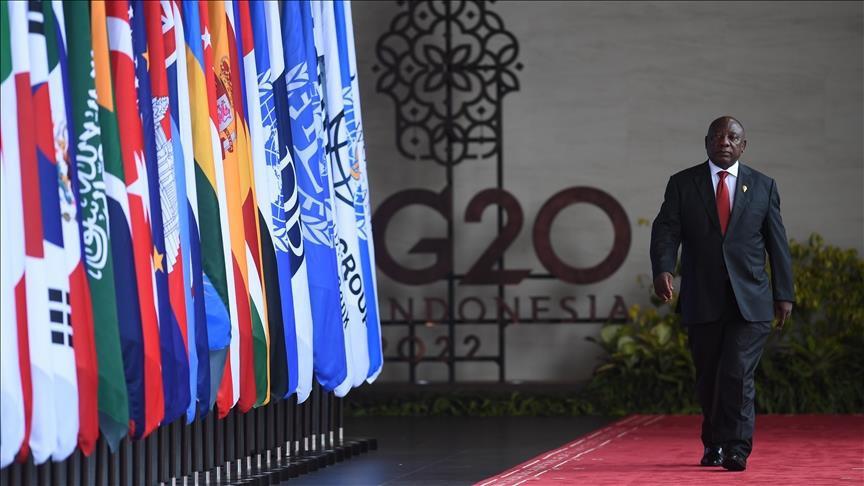
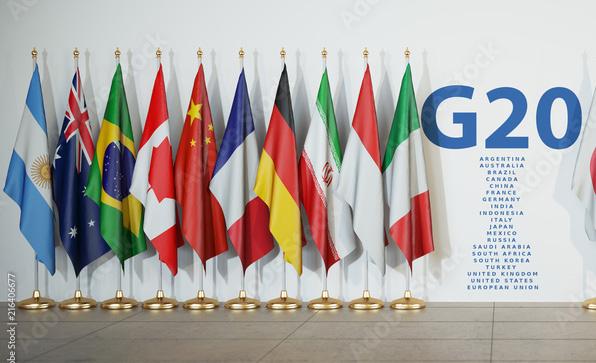
1997/1998 Asian financial crisis, the G20 consists of the original BRICS members; Western powers like the US, Germany, France and the EU; and regional powers like Japan, Indonesia, Turkey and Saudi Arabia. The African Union (AU) joined the bloc in September 2023.
As Africa’s largest economy at the time, South Africa was invited to be the only African country in the G20 in 1999. Pretoria has been vocal in promoting not only its own specific economic interests in the bloc, but also that of Africa as a whole.
The 2025 G20 summit to be hosted in South Africa will be its 20th annual summit since its first such meeting in Washington D.C. in November 2008. Both BRICS and the G20 have prioritised the UN’s Sustainable Development Goals (SDGs) which seek to achieve specified and agreed development targets by 2030.
South Africa’s chairing of BRICS in 2023 saw the expansion of the group to nine countries. A youth council was also established. A BRICS New Development Bank (NDB) had earlier been created in Shanghai, China in July 2014 to attract investment, and has approved $32 billion of infrastructure projects, though the bloc,
like the G20, has no permanent secretariat. The grouping has convened 15 summits, with South Africa hosting in 2013, 2018, and
2023. While BRICS foreign ministers focus on expansion and partnerships of its membership, its finance ministers and Central Bank governors craft strategies on new payment schemes in local currencies, and seek convergence among the financial markets of its members. BRICS+ is also increasing people-to-people contacts through meetings
involving actors in the business, parliamentary, tourism, academic, media, youth and arts sectors.
At the Centre for the Advancement of Scholarship (CAS) October 2024 dialogue, it was noted that South Africa’s foreign policy has often punched above its weight despite the fact that the country has limited technical and financial capacity, accounting for only 1.3 per cent of the BRICS+ GDP. Having been the first new member to join BRIC, Pretoria strongly championed the expansion of the group, bringing in two new African members – Egypt and Ethiopia – to bolster its African Agenda.
The non-inclusion of Nigeria –
boasting Africa’s largest population and, until recently, its largest economy – was discussed, with reports that Abuja retains an interest in joining the grouping along with other regional powers like Algeria, Turkey, Indonesia and Malaysia. A total of 34 countries have expressed an interest in BRICS+ membership.
It was, however, noted that the expansion of BRICS from five to nine members has made consensus more difficult to achieve, and there was a feeling that the group needed to integrate recent members to ensure cohesion before taking in new ones. Historical tensions between China and India, Ethiopia and Egypt, and Iran and the UAE could further disrupt the bloc’s unity.
The reported opposition of Addis Ababa and Cairo to endorsing Brazil, India and South Africa as members of an expanded UN Security Council in September 2024, was highlighted. This decision was, however, said to have been made during the 2023 Johannesburg BRICS summit at which the four new members were not yet present as full members. The statement endorsing their Council membership was part of a grand bargain that supported Beijing’s push for
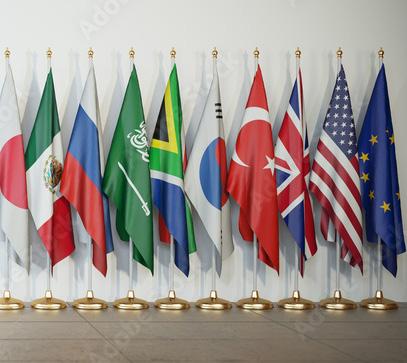
the expansion of BRICS.
The grouping has also strongly promoted reform of global governance institutions like the World Bank, the International Monetary Fund and the World Trade Organisation, and championed greater South-South economic and political cooperation. Members have further increased - to 23 per cent - the use of their own currencies in conducting trade with each other, though it was noted that the idea of delinking from the US dollar could only be achieved in the long term. BRICS+ members have also been critical of the pernicious role of Western rating agencies, though they are yet to create their own alternative rating agencies.
The bloc was described by critics as a status quo rather than revisionist organisation, which was accused of pursuing a sub-imperial approach of “talk left, walk right” in which members were seeking to improve their own positions in Western-created institutions of global governance rather than overturn the world order. China and India benefitted from an increase in weighted voting at the IMF in 2015 at the expense of countries like South Africa.
The pursuit of market-oriented agricultural policies was also said to
have damaged small farmers across the bloc. BRICS+ countries – particularly China and India - were described as being among the world’s heaviest polluters not doing enough to compensate for the environmental damage to the world’s poorest countries.
Though a quarter of the bloc’s declarations relate to climate issues, BRICS+ members are fragmented into different negotiating blocs at environmental summits. Furthermore, the BRICS Bank was said to remain beholden to Western
“Fostering Solidarity, Equality, and Sustainable Development”, will be hosted by South Africa by November. The grouping has struggled to address effectively challenges of climate change, reform of global economic institutions, crippling debt burdens of developing countries, food security, global poverty and inequality, public health and digitalisation.
The conflicts in Ukraine and the Middle East have also caused divisions between its members which has made consensus more difficult to reach. South Africa took over the one-year rotating presidency of the G20 in December 2024 as the bloc’s first African host.
The grouping has had some success in coordinating global economic policy, promoting debt suspension during the Covid-19 pandemic and leading debates on climate financing. South Africa’s presidency follows those of three southern powers: Indonesia (2022), India (2023) and Brazil (2024).
Indonesia touted “inclusive development” and “vaccine equity”; India pushed “the digital revolution” and “sustainable development”, while the Brazilian presidency, under former trade unionist Luiz Inácio Lula da Silva sought to promote “social inclusion”, “equitable development”, and launched the Call to Action on Global Governance Reform. Brasilia and Jakarta particularly pushed support for small and medium-sized enterprises (SMEs).
Some key lessons from Brazil’s 2024 G20 presidency involved the need to engage grassroots movements (such as indigenous people from the Amazon rain forest) through the group’s first ever Social Summit, to ensure an agenda set by
The idea of delinking from the US dollar could only be achieved in the long term ‘ ’
rating agencies. New Delhi was fingered as a major supplier of arms to Israel, even as Pretoria continues to pursue a genocide case against Tel Aviv at the Hague-based International Court of Justice (ICJ).
The next 2025 G20 summit, themed
the priorities of ordinary citizens, and to coordinate effectively multi-national civil society networks.
An important lesson from India’s presidency was to reduce the roughly 200

meetings to about 130. The G20 summit in November 2024 focused, under Brazil’s presidency, on “Building a Just World and a Sustainable Planet”. The meeting sought to promote Brasilia’s socio-economic, environmental and global governance reform priorities, as well as initiatives such as the Global Alliance against Hunger and Poverty which seeks to reduce the 733 million people in the world suffering from hunger.
Ten substantial policy recommendations emerged from the G20 and BRICS Pretoria policy dialogues in July and October 2024:
First, South Africa must work closely with the AU during its G20 presidency to leverage the 1.4 billion strong African market, aligning its National Development Plan and the AU’s Agenda 2063 to an effective continental development strategy.
Second, Pretoria should strongly push reforms of institutions of global governance, building on the successful establishment of a 25th chair for subSaharan Africa on the IMF Executive Board in July 2024.
Third, South Africa must seek to increase Africa’s share of the IMF’s Special Drawing Rights; prioritise food security; close Africa’s $130-170 billion annual infrastructure gap; and tackle the annual $88.6 billion illicit financial flows out of the continent.
Fourth, South Africa is encouraged
to commission experts to reform the IMF to be more transparent and accountable; examine how to achieve an effective division of labour between governments and international financial institutions; and leverage the resources of philanthropists like the Bill and Melinda Gates Foundation on global health issues.
must strongly support Brazil’s call for a two per cent global tax on billionaires in order to raise $250 billion for development: an idea backed by South Africa, Germany and Spain, but opposed by Washington.
Eighth, Pretoria should champion the phasing out of fossil fuels and promoting
Fifth, South Africa’s presidency of the G20 in 2025 provides a great opportunity to push African development priorities such as suspension of the continent’s $1.1 trillion external debt, with African countries typically spending 45 per cent of their revenues on debt servicing, and Zambia, Ghana and Ethiopia having all defaulted on their debts.
Sixth, these efforts should be closely linked to the UN Pact for the Future, agreed by world leaders in New York in September 2024, which provides a comprehensive vision for strengthening the three pillars of global multilateralism: security, development, and human rights.
Seventh, the international community
green jobs, while pressuring the rich world to deliver on annual pledges of $100 billion to developing countries to combat climate change.
Ninth, it is critical that during its G20 presidency, Pretoria coordinate policy closely and effectively between South Africa’s presidency, foreign ministry and Treasury, and take advantage of its strong think tanks, as Brazil and India did during their presidencies.
Finally, South Africa must harness its “soft power” to act as a bridge between its BRICS and global South allies on the one hand, and the rich North on the other, in order to build consensus on the challenges of sustainable development and climate funding.
Adekeye Adebajo, Senior Research Fellow at the University of Pretoria’s Centre for the Advancement of Scholarship (CAS). The above are excerpts from a policy brief based on the outcomes of two policy dialogues held in July and October last year in South Africa.
Tiyanjana Maluwa discusses whether the Ukraine crisis has altered the focus and narrative on change at the UN organ responsible for maintaining international peace and security from the perspective of African states, and how this is likely to affect the future direction of the debate
THE Security Council met on February 25, 2022 to consider a draft resolution proposed by Albania and the US. It condemned Russia’s aggression against Ukraine and decided that the Russian Federation “shall immediately cease its use of force against Ukraine and shall refrain from any further unlawful threat or use of force against any UN member state”; and “shall immediately, completely and unconditionally withdraw all of its military forces from the territory of Ukraine within its internationally recognised borders”.
Eleven of the Council’s 15 members voted in favour of the draft text. China, India and the United Arab Emirates abstained and Russia vetoed it, even though the word “condemns” was replaced by “deplores”. All the three African non-permanent members of the Security Council, Gabon, Ghana and Kenya, voted in favour of the resolution.
All three spoke unequivocally in their condemnation of the invasion as a violation of Ukraine’s territorial integrity and sovereignty, and as a violation of the UN Charter and international law. Although they were not speaking for the African Union, their respective positions aligned with the collective view of AU members on the issues of the structural power imbalance in the Security Council and the need for its reform.
This is the Common African Position expressed in the “Ezulwini Consensus”. The relevant provisions state:
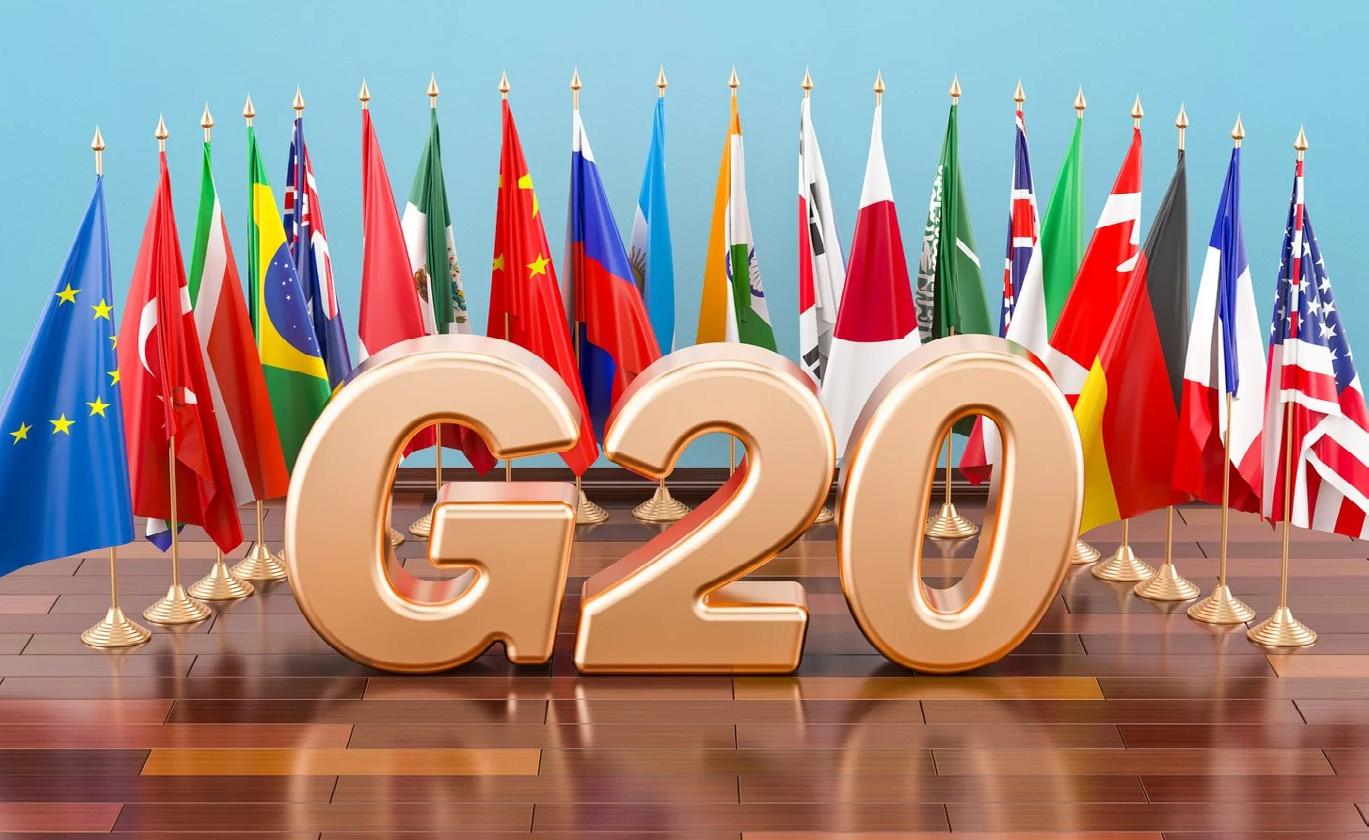
• Africa’s goal is to be fully represented in all the decision-making organs of the UN, particularly in the Security Council, which is the principal decision-making organ of the UN in matters relating to international peace and security.
• Full representation of Africa in the Security Council means: (i) not less than two permanent seats with all the prerogatives and privileges of permanent membership including the right of veto; (ii) five non-permanent seats.
• In that regard, even though Africa is opposed in principle to the veto, it is of the view that so long as it exists, and as a matter of common justice, it should be made available to all permanent
members of the Security Council.
• The African Union should be responsible for the selection of Africa’s representatives in the Security Council.
• The question of the criteria for the selection of African members of the Security Council should be a matter for the AU to determine, taking into consideration the representative nature and capacity of those chosen.
The key aspects of the interventions by the three African members may be summarised as follows. First, Gabon recalled its commitment to peace and the founding principles of the UN Charter and expressed its support for a fairer, rulesbased international order. Secondly, Gabon
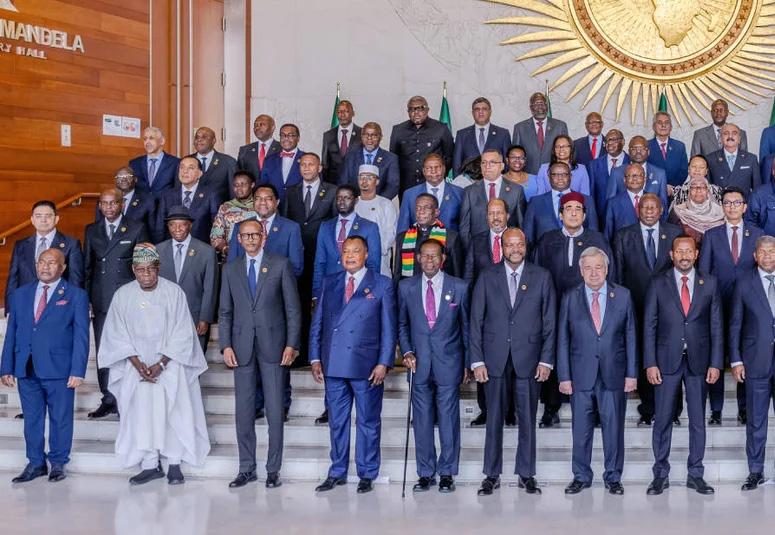
called upon members of the Security Council to reaffirm their responsibility to defend these principles with determination and vigour.
Following the vote, the representative of Ghana stated that Ghana joined the 10 other members of the Council in deploring in the strongest terms the Russian Federation’s invasion of Ukraine as a breach of its obligation to respect the provisions of Art. 2(4) UN Charter. More poignantly, Ghana stated that it was deeply disappointed by the actions of the Russian Federation as a permanent member of the Security Council, noting: “Its actions have fallen short of the standards expected of those that are considered to be the enduring guardians of international peace and security. Indeed, for those members of the Council with a special privilege, there is a special responsibility.
“[At] a time when the world looks to the Council to send a strong message that threats and use of force against other states are unacceptable, we have been unable
to do so – not because there is no broad agreement to do so but because the way and manner in which the Security Council has been structured to function constrained us.”
It is notable that both Gabon and Ghana articulated the special responsibility that members of the Security Council, in particular permanent members, have
statements is the question posed at the outset of this discussion: who will guarantee international peace and security when the guardians fail in their responsibility to do so, or breach the principle prohibiting the threat or use of force?
Ghana also invoked another point that was to be repeated in statements
as guardians of international peace and security. They both alluded to the structure of the Security Council adopted at the creation of the organisation, which has turned out to be an obstacle to its fulfilment of this special responsibility.
The subtext underlying these
by other African states in the General Assembly in the subsequent debates, namely the Russian veto as a reminder of the unfinished business of Security Council reform: “The present situation creates difficult choices that we all must consider and carefully reflect upon as we proceed
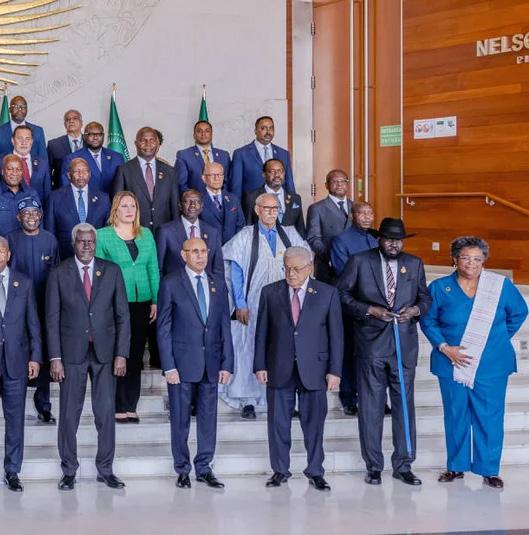
with the long-standing efforts to reform the Security Council and how it operates. “Fortunately, the ongoing process in the General Assembly provides an opportunity. All member states must genuinely commit to that process. If we fail to act proactively, our inaction will cost us permanently. “
The Permanent Representative of Kenya, Martin Kimani, also told the Security Council that Kenya voted in favour of the draft resolution “to affirm Article 2 of the Charter”. Alluding to the role of the Security Council, Kimani reminded the members of the Council and the UN that the Charter contained the tools for the pacific settlement of disputes. Furthermore, he noted: “By failing to adopt the draft resolution, [the] Security Council has failed to stop the infringement of the sovereignty of a member of the United Nations.”
A factor that played a part in the motivations behind the voting by the three African members was the perception of double standards on the part of some members of the Security Council, in
particular the three Western permanent members: France, UK and US. This can be viewed through two lenses. First, the perception that, even as one acknowledged the gravity of the situation caused by the unprovoked aggression of a nuclearpowered permanent member against a less powerful neighbour, one might recall that some past aggressions by other permanent
members in other parts of the world were never seriously challenged or condemned by the Council.
Secondly, the view that the attention given to the plight of victims of these past aggressions by Western powers was nowhere near that accorded to Ukrainians affected by the war; that these permanent members cared more about the suffering of European citizens in Ukraine than of nonWestern victims elsewhere.
This sentiment was expressed by the Kenyan Permanent Representative when he recalled the Security Council’s authorisation of intervention in Libya in 2011 and its consequences: “Even as deserved condemnations ring out today about the breach of Ukraine’s sovereignty, history’s condemnations are allowed silence in this room. We cannot help but recall that Africa’s Sahel region is in terrible turmoil due to the hasty and illconsidered intervention in Libya a decade ago.”
On that occasion, the AU sought more time for diplomacy. Its Peace and Security Council was ignored and what resulted was not peace or the safety and security of the Libyan people. Instead, terror was unleashed on African peoples in the countries to the south of Libya. There have been yet other actions of similar magnitude that have brought us to this unfortunate pass.
The allusion to the Security Council’s disregard of the efforts of the AU’s Peace and Security Council to play a role in resolving the Libya crisis was also a reminder of the occasionally fraught relationship between the AU and the UN in dealing with threats to peace and security in Africa, and their respective roles. This question, which is also somewhat linked to the Security Council reform debate, has
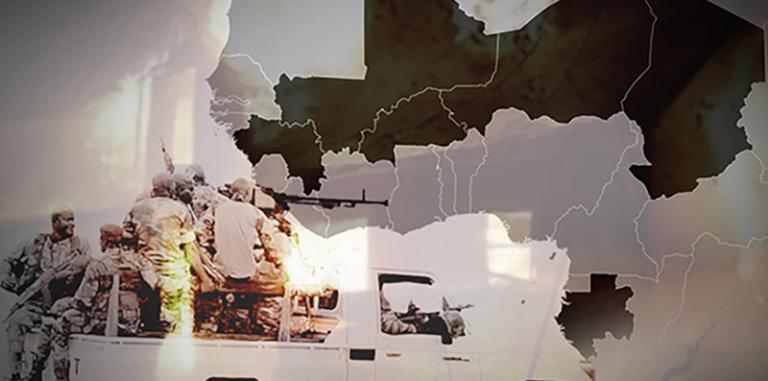
been discussed extensively elsewhere.
This writer partially agrees with this sentiment but does not, however, agree with the implied suggestion of a moral equivalence between the Russian invasion of Ukraine, which undoubtedly violated the UN Charter and international law (a point accepted even by those who support or sympathise with Russia’s rationalisation of its action), and the intervention in Libya. This writer has argued elsewhere that the Libya intervention was justifiably authorised by the Security Council within its Chapter VII powers, though its execution by NATO tainted its legitimacy.
The AU, as an organisation, did not formally react or issue a collective statement to respond to the Russian invasion. As it happened, the invasion started a little over two weeks after the AU Assembly had concluded its 35th Ordinary Session, held on February 5 and 6, 2022.
The AU’s position can nonetheless be deduced from a joint statement that was issued by the then Chairperson of the AU Commission, Moussa Faki Mahamat, and
the then Chairman of the AU, President Macky Sall of Senegal, on the day of the invasion itself. In their statement, they expressed “[their] extreme concern at the very serious and dangerous situation created in Ukraine” and called upon “[the] Russian Federation and any other regional or international actor to imperatively respect international law, the territorial integrity and national sovereignty of Ukraine”.
Furthermore, they urged “[the] two Parties to establish an immediate ceasefire and to open political negotiations without [delay]”. Even though it was not formally described as the common African position on Ukraine, the joint statement expressed what could reasonably be assumed to be the official AU position, since the Chairperson of the AU Commission personifies and represents the organisation. Still, it was left to African states to express their positions on the Ukraine war individually through their voices and votes in the Security Council and General Assembly.
It is reasonable to conclude that the paralysis resulting from Russia’s invasion of Ukraine and its use of the veto to block action by the Security Council have jolted states into a sense of urgency. Rather than dampen Africa’s quest for Security Council reform, the current paralysis has only served to add to the previous dissatisfaction of African states with what they perceive as an antiquated, undemocratic, unfair and unjust arrangement, and galvanised them to push for a faster resolution of the longstalled reform.
The dissatisfaction with the Security Council’s inaction and indifference to African problems goes back to the Rwanda genocide, if not earlier. Still there is no guarantee that the new-found urgency will lead to the desired outcome sooner without a radical shift of positions.
The paralysis of the Security Council resulting from Russia’s use of its veto to shield itself from condemnation and action by the Council over its invasion of Ukraine provides an opportunity for all UN member states to rethink their positions and

strategies to achieve real and long overdue reform. Alternatively, it may provide a pretext for the permanent members most vested in the current structure of the Security Council, with its anachronistic power imbalance, to maintain the status quo and continue to exploit its inaction and dysfunction to advance and protect their interests and allies.
I would only offer two concluding thoughts, as a future outlook on the reform debate. From my perspective, these are necessary steps to move the debate forward and overcome the impasse. First, as I have argued in my previous writing, for the AU, Security Council reform appears to have become a debate without end. I have also argued, however, that African states themselves cannot escape blame.
Despite the reported narrowing of differences and growing convergences between states, the maximalist positions that many member states have adopted remain intractable problems. A real change in these positions by all parties is a sine

qua non for the ultimate success of the reform process.
For African states, modification of their position on the veto and compromise with
diplomacy”.
Staeger characterises the AU’s accession to G20 membership as a good instance of the AU’s ability to
other groups and key states is unavoidable. One African political leader warned about this early in the process of negotiating a common position and implored his peers to be realistic and not insist on the veto. The effort to persuade the AU to align its position with that of the G4 group (India, Brazil, Japan and Germany) and find common ground between them has not borne fruit over the last 20 years.
Second, in my view, African states must come to terms with the role that realism, as theory and practice, plays in international relations. Because of their history of colonialism and their subsequent struggles to establish themselves as sovereign states and members of the international community, African states prize multilateralism over unilateralism.
The UN was established as the embodiment of the idea of multilateralism. Africa’s quest for a reformed Security Council is in essence a search for a fairer and more just multilateral world based on the notion of shared governance. To achieve this end, African states would do well to accept that multilateralism and realism are not mutually exclusive ideas. The fresh urgency injected into the negotiations for Security Council reform needs to be accompanied by a fresh sense of realism.
Writing on the AU’s pursuit of African agency amidst the Ukraine crisis and the war’s effect on Africa, Ueli Staeger at the University of Amsterdam concludes that the AU has shown a growing willingness to speak with one voice globally and work towards attaining a “global role”. He identifies the AU’s success in securing a permanent seat at the G20 as an achievement that would not have been possible without the new context of the Ukraine crisis and the AU’s “crisis
“[transform] great powers’ logic of global competition into a world where there is space for African voice, representation and participation”. This discussion has shown that, in fact, the AU demonstrated its willingness to forge and speak with one voice well before the outbreak of the Ukraine crisis, when it adopted the Ezulwini Consensus in 2005.
AU member states have on several occasions unanimously reaffirmed their commitment to the Ezulwini Consensus and continued willingness to speak with one voice, most recently in February 2023. The Ukraine crisis, Russia’s abuse of the veto, and the resultant paralysis of the Security Council over the conflict have not diminished Africa’s collective desire and push for UN reform, particularly its quest for permanent seats and more nonpermanent seats on the Council.
The question is whether the AU can employ the same strategic “crisis diplomacy” that has become more visible in the context of the Ukraine conflict to reinvigorate the negotiating efforts of its member states through the Intergovernmental Negotiations (IGN) process to achieve the desired global role by enhancing the level and nature of Africa’s representation in the Security Council. This requires a willingness to go beyond the formulaic reiteration of previously stated positions by all parties, and not just the African states.
An unshakeable insistence on maximalist positions regarding the veto will doom the project of Security Council reform to failure and stall it on a road to nowhere. Africa has a just cause in its demand for permanent representation that risks being held hostage to the binary choice it has presented to other states as “either a veto for all or a veto for none”.
THE Commonwealth Lawyers Association (CLA) notes with grave concern the Executive Order of US President Donald Trump entitled “Imposing Sanctions on the International Criminal Court” dated 6th February 2025 (the Executive Order).
The CLA agrees with the UN Special Rapporteur on the independence of judges and lawyers, Margaret Satterthwaite, that the Executive Order is “a direct attack on the international justice system”.
The CLA notes the first principle of the UN Basic Principles on the Independence of the Judiciary, which states: “The independence of the judiciary shall be guaranteed by the State and enshrined in the Constitution or the law of the country. It is the duty of all governmental and other institutions to respect and observe the independence of the judiciary.”
Commonwealth members, who account for approximately one third of the world’s population, have adopted as part of their core values the Commonwealth (Latimer House) Principles on the Three Branches of Government. Principle IV states: “An independent, impartial, honest and competent judiciary is integral to upholding the rule of law, engendering public confidence and dispensing justice.”
The International Criminal Court
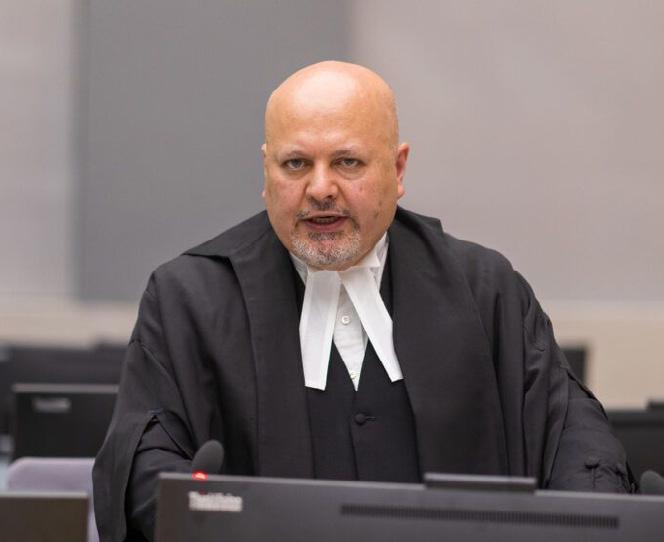
(ICC) is not immune from criticism or scrutiny on the discharge of its functions. It is required to adhere to well-established principles and stringent standards under international law.
It must be apolitical, and it further cannot be perceived as partisan or biased in favour of anyone or any interest. It must be, and must be seen to be, independent and neutral.
Against this recognition of the importance of the independence of the judiciary and the justice system, the Executive Order directly interferes with the ICC’s independence and shows the inclination to punish an institution that aims to ensure the individuals most
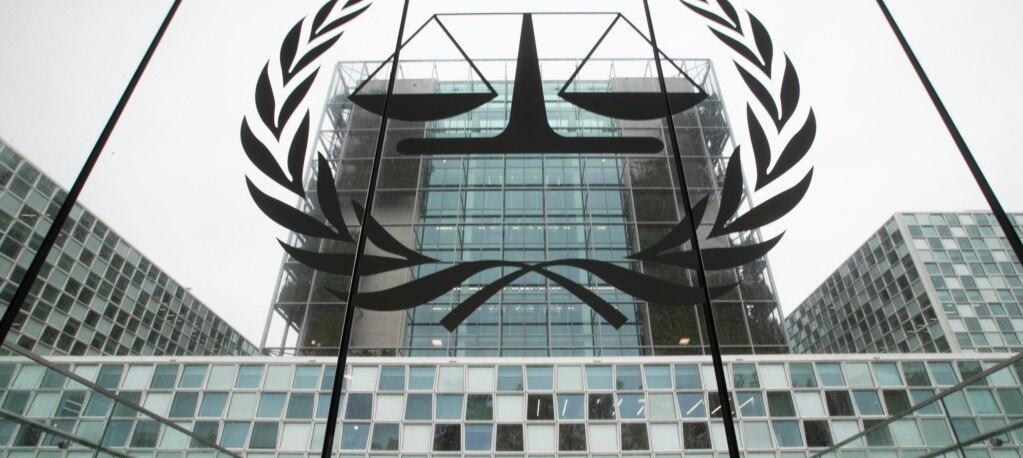
responsible for committing atrocities cannot escape justice.
The Executive Order is unequivocally intended to intimidate the ICC as an organisation, and those who work for it. It also refers to sanctioning people who cooperate with the ICC in its investigations.
This has wide-reaching implications and will embolden those who may have committed crimes under international law to continue acting with impunity.
Interference with an international justice organisation is evidence of autocratic conduct, which profoundly erodes and undermines the rule of law. If left unchecked, this will encourage other autocratic leaders to also disregard essential principles.
Such a trend would, in many countries, incalculably jeopardise the fundamental rights of citizens.
The CLA condemns the Executive Order and asserts that no one responsible for crimes under international law should be protected or aided in their attempts to escape individual or collective accountability.
UN Special Rapporteur Satterthwaite also stated that: “The ICC is a court that was set up in order to once again try to found the primacy of law over conflict, over violence, and it’s a court that is set up to look at the very most grave crimes under international law.
So, sanctioning this entity and its principal officers is a direct attack on that rule of law institution and on the effort to end impunity for these very grave crimes.”
The CLA joins her call for States to say: “this is unacceptable. This is beyond the pale. We will not sit by while you attack an important court of the international rule of law.”
Commonwealth Lawyers Association (CLA), 20th February 2025
The President of the International Criminal Court, Judge Tomoko Akane, issued a statement following the issuance of US Executive Order seeking to impose sanctions on the war crimes court. Below is her statement
INOTE with deep regret the issuance by the United States of an Executive Order seeking to impose sanctions on the officials of the International Criminal Court (ICC, Court), harm the Court’s independence and its impartiality and deprive millions of innocent victims of atrocities of justice and hope.
The ICC is a judicial body which performs functions that align with the interests of the international community by enforcing and promoting universally recognised rules of international law, including the law of armed conflicts and human rights law.
As atrocities continue to plague the globe affecting the lives of millions of innocent children, women and men, the Court has become indispensable.
It represents the most significant legacy of the immense suffering inflicted on civilians by the world wars, the Holocaust, genocides, violence and persecutions.
When most of the states of the world gathered to draft the Rome Statute, they made the dream of many women and men come true.

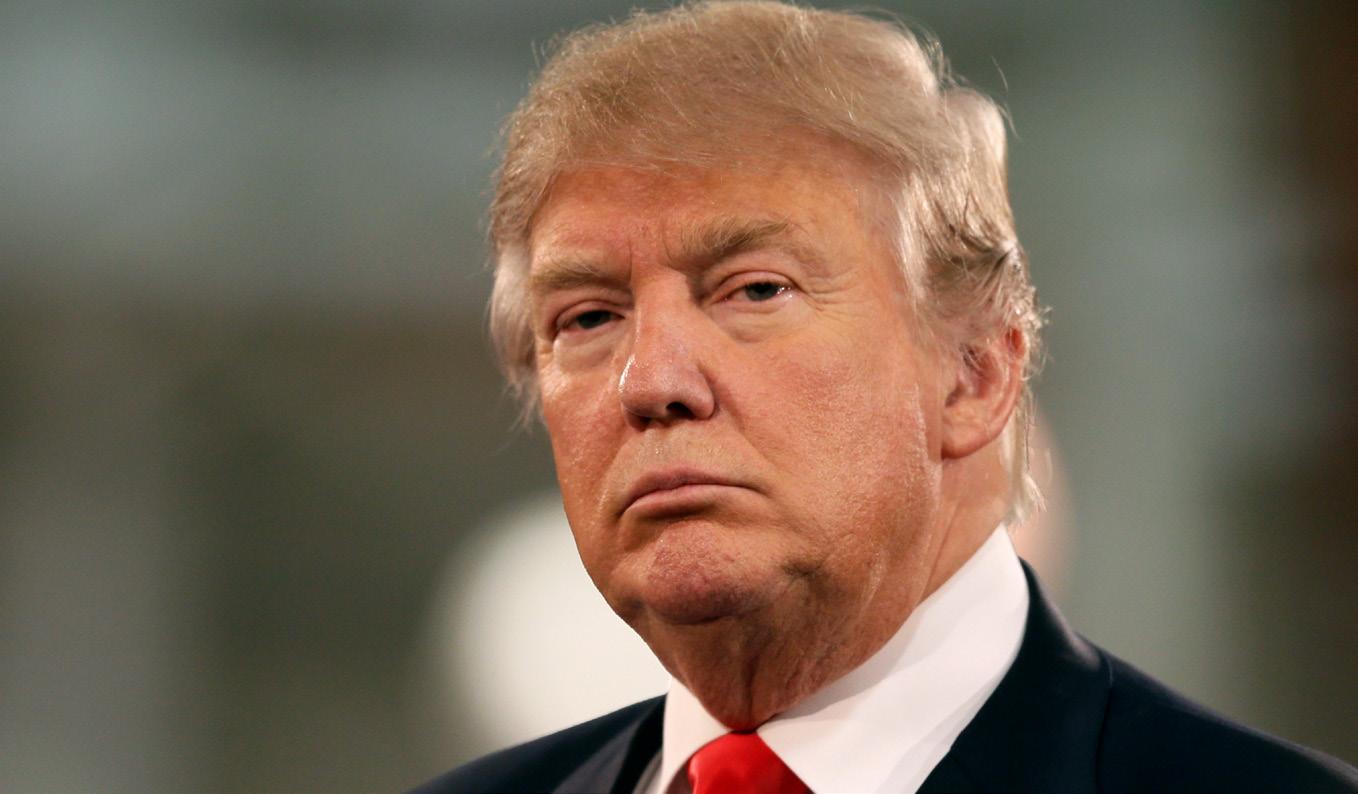
Today, the ICC is dealing with proceedings arising from different situations across the world, in strict adherence to the provisions of the Rome Statute.
crimes.
We firmly reject any attempt to influence the independence and the impartiality of the Court or to politicise our judicial function.
The announced Executive Order is only the latest in a series of unprecedented and escalatory attacks aiming to undermine the Court’s ability to administer justice in all situations.
Such threats and coercive measures constitute serious attacks against the Court’s States Parties, the rule of law based international order and millions of victims.
The ICC and its officials from all over the world realise daily its judicial mandate to determine whether certain individual conducts, within its legitimate jurisdiction, give rise to responsibility for international
We have and always will comply only with the law, under all circumstances.
The ICC stands firmly by its personnel and pledges to continue providing justice and hope to millions of innocent victims of atrocities across the world, in all situations before it, in the sole interest of human dignity.
I call upon all those who share the values enshrined in the Statute to stand united in the Court’s defence: our 125 States Parties, civil society and all nations of the world.
February 7, 2025 AB

Namibia has made history as the only African nation led by women in its top three political roles—a moment of continental significance, writes Valerie Msoka
IN a landmark moment for southern Africa and the continent as a whole, Namibia recently ushered in a new era of political leadership with the swearing-in of its first woman President, Netumbo Nandi-Ndaitwah. This transition not only marks a significant milestone in Namibian politics but also sends a powerful message across Africa: gender parity in leadership is not just possible—it is happening.
Nandi-Ndaitwah, a seasoned diplomat and veteran of the liberation struggle, now leads a country that has taken bold steps toward gender inclusivity. The appointments of a woman Vice-President and a woman Speaker of the National Assembly accompany her presidency. Out of the total cabinet, nine positions are currently held by women—a signal of a deliberate, forward-thinking commitment to diversify leadership.
This political transformation did not occur in a vacuum. Within SWAPO—the ruling party since independence—the rise of Netumbo Nandi-Ndaitwah reflects both long-standing internal positioning and strategic navigation through party structures traditionally dominated by male elites. Her ascent signals a consolidation of influence among progressive factions within the party that have advocated for stronger gender parity. The coordinated appointments of a woman Vice-President and a woman Speaker suggest a deliberate power-sharing strategy, likely designed to pre-empt internal dissent while projecting unity. However, questions remain about whether these appointments will be matched by broader reforms within party ranks and across regional governance levels.
This development is not an isolated incident; it is the product of years of advocacy, progressive constitutional reforms, and a political culture that has slowly embraced gender equity. Yet, Namibia’s bold move stands out because it disrupts longstanding patterns of male dominance at the highest levels of power and governance. The ripple effects could be transformative—not just for Namibian society, but for Africa’s broader gender
equality agenda.
The symbolism of Namibia’s leadership transition is profound. Leadership remains one of the most visible indicators of a society’s commitment to equality and social justice. Historically, African women have been active in liberation struggles, community building, peacebuilding and grassroots mobilisation, yet for decades, have been underrepresented in decision-making positions. Namibia’s recent appointments challenge this disparity head-on.
By achieving a woman-led presidency, Namibia shows that political will and policy frameworks can shatter glass ceilings. For young African girls watching, it’s a powerful affirmation: you belong in every room where decisions are made.
More importantly, it sets a precedent for political parties and institutions to prioritise gender balance not just in rhetoric, but in action. Gender-inclusive leadership brings different perspectives to the table. Studies show that gender-diverse leadership improves governance outcomes, particularly in sectors such as health, education, social protection, and justice. Inclusive leadership often yields better policymaking, broader representation of community needs, and more sustainable development.
Namibia is not alone in making
significant strides toward reshaping the gender dynamics of leadership. Several African countries have been global frontrunners in this regard, showing that African solutions to global challenges— including gender parity—are very much within reach.
Rwanda is perhaps the most prominent example. Following the 1994 genocide, the country embarked on a massive rebuilding project, with women playing an integral role. Today, Rwanda holds the highest percentage of women in parliament globally, with over 60 percent of its seats occupied by women. It also boasts a significant number of women in the cabinet and judiciary.
In 2018, Ethiopia appointed SahleWork Zewde as the country’s first female president, marking a brief achievement of a gender-balanced cabinet—a milestone that inspired many.
Senegal and South Africa have also made considerable progress, with the implementation of gender parity laws and high female representation in parliaments and ministerial roles.
In Tanzania, President Samia Suluhu Hassan became the country’s first female president in 2021 following the death of President John Magufuli. Her leadership style and governance priorities have garnered both domestic and international


attention, further proving the importance of women in executive roles. She is currently the only other woman head of state in Africa, alongside Namibia’s Netumbo Nandi-Ndaitwah.
These examples debunk the myth that gender equality in leadership is a Western concept being imposed on African societies. Instead, they affirm that gender-inclusive governance is not a foreign concept imposed on Africa—it is a homegrown evolution of Africa’s democratic journey. They showcase that African countries are not only capable of achieving parity—they are, in many cases, leading the way.
While individual countries are making headway, continental and regional institutions must do more to consolidate and scale these gains by institutionalising gender equality.
The AU, through its Agenda 2063 and the Maputo Protocol, has made commitments to gender equality and women’s empowerment. However, implementation remains uneven. The AU has taken commendable steps, such as appointing women to key leadership roles within the commission and encouraging gender-sensitive policies. Still, it must go further. The AU should:
- Set binding quotas for women’s representation in leadership.
- Strengthen monitoring mechanisms to hold member states accountable.
- Invest in capacity-building programs for emerging women leaders.
Groups like SADC, ECOWAS, and EAC must do more than sign protocols. For example:
- SADC’s Protocol on Gender and Development once aimed for 50 percent representation of women in politics.
While Namibia and South Africa have come close, most others lag behind.
- ECOWAS could mainstream gender equality into its peace, security, and governance architecture.
- Regional parliaments should lead by example, ensuring gender parity within their structures.
While this leadership shift is monumental, it may not be immune to resistance. Patriarchal norms still run deep in many segments of Namibian society, and a visible concentration of power among women at the top may trigger backlash from conservative actors, both within and outside the political system. The real test will come in how this leadership team navigates institutional inertia, entrenched patronage networks, and potential genderbased pushback. Sustained progress will
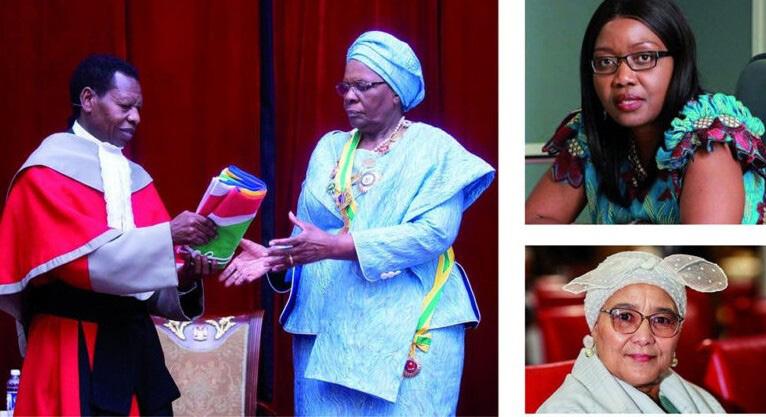
depend not just on symbolic representation, but on whether these leaders can implement transformative policies in the face of cultural and political headwinds.
The road to achieving full gender parity in Africa has significant challenges. Patriarchal norms, lack of political will, gender-based violence, and economic inequality continue to undermine women’s full participation in leadership across the continent. To this end, there are several strategic recommendations for further progress that African governments, institutions, and civil society must prioritise. These include:
1. Legislate Gender Quotas: Countries that have adopted legal gender quotas have seen faster and more sustained growth in women’s political representation. These quotas should apply not only to parliaments but also to cabinets, party lists, executive appointments and local government structures.
2. Support Female Political Candidates: Women often face unique barriers to entry in politics, including limited access to campaign financing, media coverage, and party support. Establishing mentorship programs, leadership training, and financial support structures for aspiring female politicians is crucial.
3. Combat Gender-Based Violence: Women in politics frequently face harassment, threats, and violence, both online and offline. Stronger laws, legal protections, enhanced enforcement, and increased societal awareness are essential to creating safe environments for women in public life. Perpetrators of GBV must be held accountable.
4. Engage Men as Allies: Gender equality is not a women’s issue; it’s a national development issue and a societal imperative. Men in leadership must
actively support and champion gender inclusivity through policy advocacy, mentorship, and dismantling institutional barriers.
5. Youth Engagement and Education: Building Gender-Equitable Leadership for the future starts with changing mindsets. Gender sensitivity and leadership development should be embedded in school curricula, civic education, and community programs.
6. Track and Report Progress: The AU and regional bodies should establish independent monitoring and evaluation mechanisms to track progress toward gender parity and hold member states accountable for their commitments.
Namibia’s moment is more than symbolic—it is both bold and catalytic. It redefines what leadership can look like in Africa and sets a benchmark for inclusion, equity, and democratic growth. The true measure of its impact will lie in the outcomes it delivers: more inclusive policies, equitable development, and a political culture where leadership is defined by merit, not gender.
For the continent, the question is no longer whether Africa is ready for women leaders—the evidence shows it is. The question is how fast and how boldly African nations are willing to accelerate toward full gender parity. It isn’t just about representation. It’s about equity, justice, and unlocking the full potential of Africa’s population.
As Namibia steps into the global spotlight with a leadership team that looks more like its population, other African countries have a clear choice: follow suit, lead boldly, and create a future where every girl can see herself in power—or risk being left behind in a world where equality is no longer optional, but essential.

Despite Liberia being the first African nation to elect a female president and has had a female vice president, these milestones notwithstanding, state institutions remain overwhelmingly male-dominated, writes
Merceline Odhiambo
GLOBALLY, constitutional provisions aim to advance gender equality; nevertheless, patriarchal practices persist, leading to gender bias in the political process. Notably, women’s political involvement has gradually increased on the global stage, propelled by initiatives such as the Beijing Platform for Action and The Committee on the Elimination of Discrimination against Women (CEDAW), which aim to foster gender equality.
However, despite significant increases in political access, women still struggle to exercise and influence political power on an equal footing with men. Entrenched societal norms continue to hinder women from realising their full potential in political spheres, highlighting the ongoing struggle for equal representation and influence. While progress has been made, women's participation in politics still falls well short of equality with men, emphasising the persistence of gender disparities even in countries where women constitute the majority of the population.
Across Africa, similar trends are observed, with a gradual increase in female political representation over the years. Nevertheless, literature on women and constitution-making in Africa remains sparse, limiting the visibility of women’s contributions. Furthermore, women’s political participation across Africa is influenced by multiple factors rather than a single determinant.
Take Liberia, for example. Liberian women gained the right to vote in 1948 following a constitutional amendment spurred on by years of collective mobilisation by women’s organisations. The first Liberian woman was elected to the Legislature in 1965, marking an important milestone.
However, civil unrest and political instability have historically created both barriers and opportunities for women’s increased representation in political party structures. Since 2005, Liberian women have actively advocated for gender quotas, with partial successes in the voluntary adoption of quotas by some political
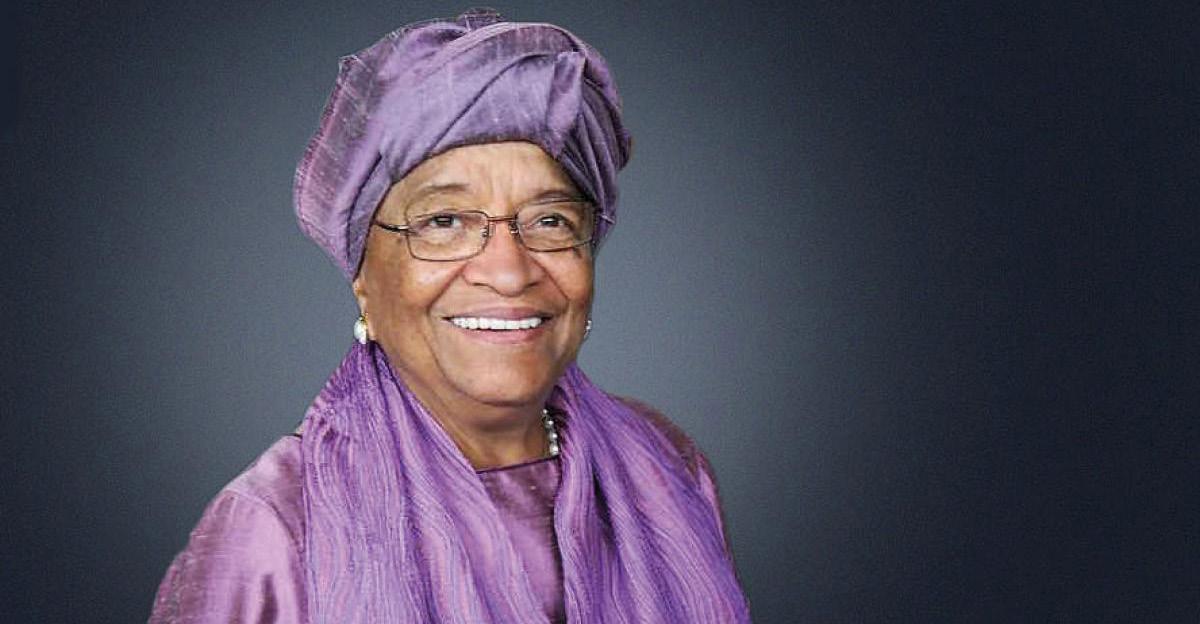
parties.
Liberia has the distinction of being the first African nation to elect a female president (Ellen Johnson Sirleaf in 2006) and recently had a female vice president (Jewel Taylor from 2018 to 2024). Despite these milestones, state institutions remain overwhelmingly male-dominated. Without affirmative action policies and legislative mandates to ensure women’s inclusion, Liberia’s democratic and developmental aspirations will remain unfulfilled.
The country has made measurable progress in promoting women’s political participation, yet significant gaps persist, particularly in representation at decision-making levels from local to national governance. Liberia ranks 161 out of 182 countries in terms of women’s representation in national parliaments.
Women currently hold just 10.7 per cent of the 103 seats in the Legislature, a figure significantly below the sub-Saharan Africa average of 27.2 per cent and West Africa’s average of 19.2 per cent. Alarmingly, this figure has declined over time, from 14.9 per cent in 2006 to 10.7 per cent in 2024.
Although Liberia has undertaken democratic reforms and initiated decentralisation efforts to bring governance closer to the people, women continue to be under-represented at the local level.
Women hold less than 11 per cent of statutory government positions and less than nine per cent of chieftaincy roles.
Notably, political parties serve as the primary gatekeepers to leadership, governance and decision-making spaces. However, women remain grossly underrepresented in political party leadership, candidate lists and policy-making structures. This systemic exclusion reinforces persistent gender inequalities and limits the ability of women to influence national policies.
Liberia lacks legislated gender quotas, but structural barriers to women’s equal participation in political life can be mitigated through temporary special measures with specific targets. Gender quotas serve as temporary special measures to accelerate women's substantive equality with men and counteract historical marginalisation.
A gender quota for women on candidate listings was first established in 2005, with the Guidelines Relating to the Registration of Political Parties and Independent Candidates requiring each party to ensure that 30 per cent of its candidates are women.
Article 5 of the Liberian Constitution promotes national unity and the participation of all citizens in governance. Additionally, various policies address

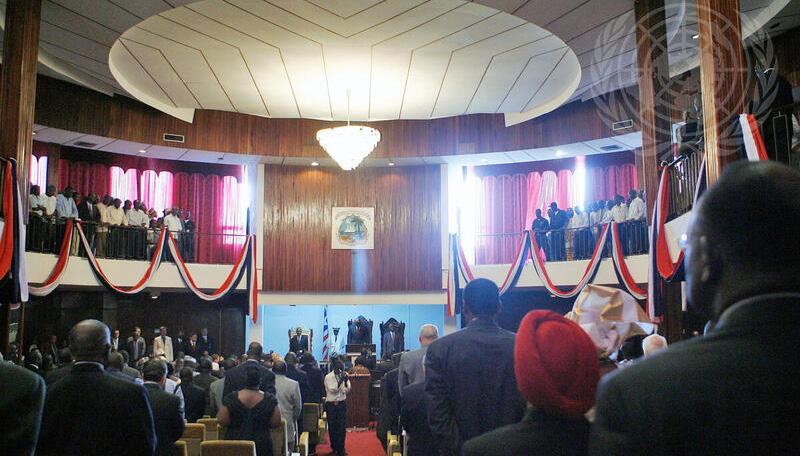
different aspects of women’s political representation.
The National Gender Policy (20182022) committed to gender parity in governance by promoting affirmative action and legislative reforms for increased female participation. The National Government’s Pro-Poor Agenda for Prosperity and Development (PAPD) (2018-2023) also targeted 30 per cent female political representation by 2023 under Pillar One: Power to the People.
In February 2022, the House of Representatives passed an Act to amend sections of the New Elections Law (1986). The amendments to Section 4.5 state that political parties shall have no less than 30 per cent of either gender in leadership or candidate listings. The Act also introduces an enforcement mechanism, empowering the National Elections Commission (NEC) to reject candidate listings that fail to meet the quota.
This is critical, as political parties have historically not complied with gender balance due to the absence of penalties for non-compliance. While 30 per cent falls short of gender parity, it represents a significant step toward addressing women’s under-representation. Importantly, the gender quota framework is not discriminatory, as it could also apply to men in the future should women become over-represented.
Notably, only half of the voluntary quota has ever been realised. The 2023 elections presented a crucial opportunity to advance gender equality in Liberia, yet political parties' performance regarding
this was disappointing.
The low representation of Liberian women in the Legislature, along with the poor electoral outcomes for female candidates, highlights the need for a legally binding gender quota. Without legal enforcement, the system of gender quotas remains weak, particularly in the face of political resistance and lack of accountability. Structural barriers such as exorbitant nomination fees and a centralised candidate selection process further impede women's ability to secure political positions.
tickets. However, following candidate nominations, only two political parties met this target.
Six parties did not nominate any women candidates, while 22 per cent of registered independent candidates were women. A female presidential candidate also ran as an independent, disproving the notion that financial barriers are the sole reason for women’s low participation in politics.
Globally, quotas are widely seen as a mechanism to fast-track equal representation in politics and have been a key tool for promoting democratisation since the 1990s. Notably, 137 countries have adopted constitutional, electoral, or political party quotas to address gender gaps in national decision-making.
Of these, 76 have legislated electoral quotas at the national or sub-national levels. Among Africa’s 54 countries, 46 have implemented legislated quotas, and 37 have adopted quotas in either the single/ lower house or upper house of national parliament.
Without legal enforcement, the system of gender quotas remains weak
At the voter registration stage for the 2023 elections, 1,237,257 women registered to vote, making up nearly half of the total electorate. In populous counties such as Nimba, Bong and Montserrado, more women than men registered. However, at the senatorial level, only seven out of 100 candidates were women, and only two female presidential candidates participated in the race. As of July 10, 2023, NEC data showed that only 85 (15.9 per cent) of the 533 registered aspirants for the October 2023 legislative elections were women.
Prior to the elections, a Memorandum of Understanding (MOU) was signed between the National Elections Commission (NEC) and political parties to ensure that there were at least 30 per cent female representation on party
Evidence suggests that constitutional and legislated quotas are more effective at increasing women’s representation than voluntary party quotas, as all parties are required to comply. Additionally, gender quotas serve as temporary special measures designed to accelerate women’s substantive equality with men and initiate structural and socio-cultural changes to address the historical marginalisation of women in political life.
In the case of Liberia, despite national policies calling for gender parity, the country remains one of the lowest-ranking in Africa for women’s political representation. Voluntary quotas have proven ineffective in significantly increasing women’s participation in politics.
For meaningful change, Liberia must transition from voluntary to legally enforceable gender quotas, ensuring compliance and penalising political parties that fail to meet targets. Strengthening political party reforms, funding mechanisms for female candidates and civic education initiatives are essential steps toward achieving a more inclusive, representative democracy.
Merceline Odhiambo is a governance, gender and policy research professional. She holds an MSc in Global Leadership and Peacebuilding from King’s College London and is an African Leadership Centre (ALC) Fellow. As a Research Fellow in the Governance and Participation Unit at UN Women Liberia, she gained first-hand insight into the challenges surrounding women’s political participation in the country.
Although International Women’s Day was marked on March 8, the call to recognise, support, and celebrate African women endures far beyond a single date. Ojo Emmanuel Ademola reflects on how African women continue to lead, innovate, and inspire in the digital age—and why the celebration must be constant, not seasonal
In the weeks since International Women’s Day on March 8, one truth remains clear: African women are not just part of the story—they are shaping its future. The global spotlight may have shifted, but the importance of honouring African women's contributions must not dim. In every corner of the continent and across the diaspora, African women are breaking boundaries in leadership, entrepreneurship, activism, and technology. Now more than ever, it is vital to recognise their achievements, foster fairness and opportunity, and ensure their stories continue to be told—not only in March, but all year long.
How do we genuinely celebrate African women during this poignant season of International Women's Day with bold and varied displays of strengths? Let us delve into the unique examples in which African women have demonstrated resilience, compassion, and leadership, showcasing their diverse and remarkable qualities.
As we commemorate International Women's Day, we must honour and recognise the remarkable achievements of African women who have played pivotal roles in shaping our world. Angela Davis, a renowned civil rights activist and scholar, has fearlessly fought against racism and inequality, championing causes such as police brutality and economic injustice.
Additionally, Chimamanda Ngozi Adichie, a Nigerian author and feminist advocate, challenges stereotypes and promotes gender equality through her powerful writing, including works like We Should All Be Feminists and Half of a Yellow Sun. Wangari Maathai, the first African woman to win the Nobel Peace Prize, founded the Green Belt Movement in Kenya, empowering women through environmental conservation. Lupita Nyong'o, a Kenyan-Mexican actress, uses her platform to advocate for diversity and representation in the entertainment industry, addressing issues like body positivity and
racial identity.
Worthy of further celebration are: Yaa Gyasi, a Ghanaian-American author, explores the legacy of slavery and colonisation in her novel, Homegoing, shedding light on African history and the experiences of African women. These exemplary women exemplify courage, resilience, and determination, inspiring others to follow in their footsteps and pave the way for a more equitable and inclusive society. Let us celebrate the voices and achievements of African women worldwide, acknowledging their invaluable contributions to our collective progress and empowerment.
African women, such as Funmilayo Ransome-Kuti and Miriam Makeba, have bravely stood against colonialism and injustice, advocating for women's rights and using their voices to raise awareness on pressing issues like apartheid. Similarly,
figures like Fatou Bensouda and Leymah Gbowee have demonstrated an unwavering commitment to justice and peace, leading movements that have brought positive change to their communities and beyond.
More so, Amina Mohammed, through her diplomatic endeavours and advocacy for sustainable development and gender equality, exemplifies the resilience and determination of African women in shaping global policies and fostering empowerment. Together, these inspiring women, alongside countless others, have left a lasting impact on society, motivating us to continue championing equality, justice, and progress for all women. As we mark International Women's Day and honour their legacies, let us pledge to uphold their ideals and work towards a more inclusive and equitable world where the voices and contributions of African women are valued and celebrated.
What leadership and management
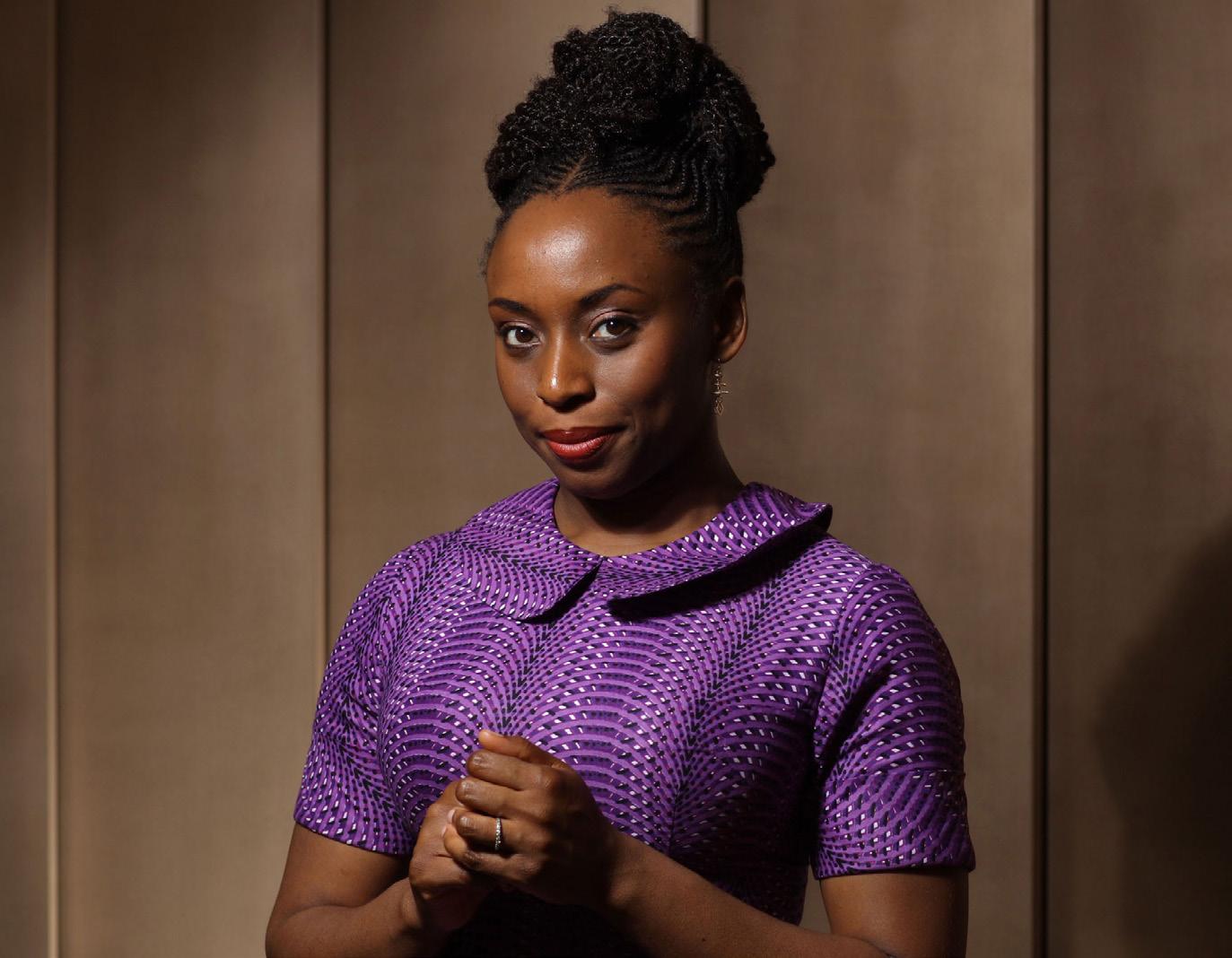
strategies have African women adopted to influence their values in the digital age? African women leaders and managers in the digital age are championing diverse leadership and management styles deeply rooted in their values and experiences. These include collaborative leadership, where teamwork and soliciting varied perspectives are key priorities, and servant leadership, which emphasises empathy, humility, and a dedication to uplifting others.
Furthermore, adaptive leadership is prominent among African women leaders, showcasing their ability to effectively navigate complex and fluctuating environments. They focus on enhancing emotional intelligence, recognising the significance of empathy, self-awareness, and effective communication in forming strong relationships and influencing others.
Additionally, these women leaders embrace technology by integrating digital tools and platforms into their practices to improve communication, streamline processes, and drive innovation within their organisations. Their distinctive leadership and management styles positively impact their organisations and communities, reflecting their values and commitment to making a difference in the digital era.
There are numerous ways to robustly celebrate African women in the digital age, showcasing their achievements, contributions, and leadership through various avenues and platforms. One approach is through digital campaigns, utilising social media, websites, and digital advertising to highlight the successes and stories of African women leaders, entrepreneurs, activists, and innovators to reach a wider audience and raise awareness about their accomplishments. Organising online events such as webinars, panel discussions, and conferences offers a platform to celebrate African women in diverse fields, inviting prominent speakers to share their experiences with a global audience.
Moreover, digital storytelling through multimedia platforms like podcasts, videos, and blogs can be used to share the impactful stories of African women, showcasing their resilience, creativity, and community contributions. Online mentorship programs can also be vital in celebrating African women and connecting professionals with aspiring leaders to provide guidance and support for personal
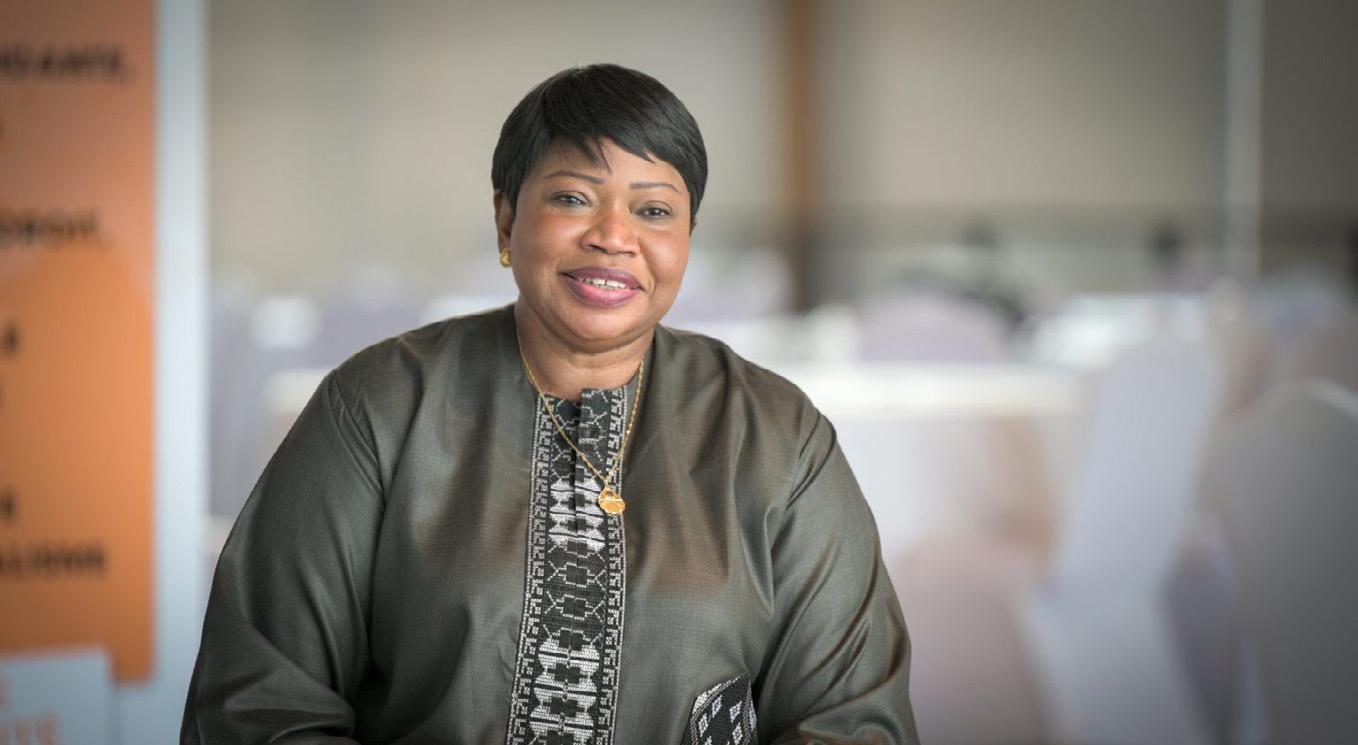
and professional growth. Furthermore, highlighting African women's artistic expressions and tech innovations on digital platforms celebrates their talents and cultural heritage. It acknowledges its role in driving technological advancements and social impact projects in Africa and beyond. Through these approaches, we can robustly celebrate African women in the digital age, amplifying their voices and achievements for a global audience.
How can we ensure that acts of kindness and fairness are extended to African women both now and in the future? To further advance acts of kindness and fairness towards African women both now and in the future, consider the following robust recommendations:
Back women-owned businesses: Demonstrate your backing for African women entrepreneurs by patronising their businesses. Encourage others to do the same to aid in enhancing economic empowerment for women.
Provide mentorship and networking: Extend mentorship and networking opportunities to African women professionals and students. Share your expertise, skills, and insights to help them thrive in their careers and grow personally.
Champion equal rights: Advocate for gender equality and support policies and practices that foster equal rights and opportunities for African women. Support initiatives that address obstacles to women's empowerment and progression.
Invest in education and training: Support programs and projects that offer education, training, and skills enhancement opportunities for African women. Assist them in acquiring the knowledge and
competencies essential for excelling in their chosen fields.
Foster diversity and inclusivity: Cultivate inclusive settings and encourage diversity in your workplace, community, or organisation. Celebrate African women's unique viewpoints and contributions and ensure that their voices are acknowledged and respected.
Heighten awareness: Use your platform and influence to highlight concerns impacting African women, such as gender-based violence, discrimination, and social injustices. Endorse campaigns and endeavours that strive to bring about positive change and empower women.
By embracing these initiatives and displaying acts of kindness and fairness towards African women, we can help forge a more all-encompassing, fair, and equitable society for all.
Celebrating and supporting African women in the digital age is a matter of recognition and a commitment to creating a more inclusive and equitable society. By promoting acts of kindness and fairness, advocating for equal rights, providing mentorship and opportunities, and raising awareness about issues affecting African women, we can contribute to their empowerment and success. We must continue to champion the voices and contributions of African women, nurturing a future where they can thrive and lead with resilience, determination, and grace. Together, let us strive to build a world where African women are valued, respected, and given the opportunities they deserve.

This new transition period raises critical concerns about whether it represents a genuine step forward in addressing Somalia's evolving security needs, or simply perpetuates the status quo under a new banner with fewer troops and smaller footprints, writes Janet Sankale
THE African Union Support and Stabilisation Mission in Somalia (AUSSOM), which officially replaced the African Union Transition Mission in Somalia (ATMIS) on January 1, 2025, has inherited a complex web of unresolved challenges. Financial uncertainty looms large, and the mission’s operational strength remains in question as troop contributions face delays, with geopolitical tensions threatening its stability.
The deployment of troops was further entangled in a high-stakes diplomatic standoff between Somalia and Ethiopia over a controversial sea access deal with Somaliland, igniting regional friction in early 2024. Additionally, a lack of consensus between Somalia and Burundi over contributing troops added another layer of complexity, stalling progress.
However, following months of diplomatic tensions, a joint communique issued by Somalia and Ethiopia on February 22, 2025 confirmed the presence of Ethiopian National Defence Forces within the African Union’s peace support framework. Despite this diplomatic resolution, AUSSOM faces a daunting path ahead, navigating financial constraints and withdrawal of Burundian forces due to disagreements over troop contributions. This development threatens to weaken the mission’s operational capacity and risks undoing hard-won gains in Somalia’s stabilisation efforts.
In December 2024, the UN Security Council adopted resolution 2767, which endorsed the AU Peace and Security Council’s decision to transition from ATMIS to AUSSOM. This marks the third AU mission in Somalia that aims to further establish a stable government, bolster the Somali security forces and combat the extremist Al-Shabaab group. This new mission is a continuance of support to the ongoing international commitment to
stabilising Somalia amid persistent security challenges.
For nearly two decades, Somalia has struggled to establish a robust central government capable of combating AlShabaab, an Islamist insurgent group that has capitalised on the feebleness of the central government since its inception in 2006. Despite the AU’s efforts through previous missions to degrade and contain Al-Shabaab, the group remains a significant threat to peace and security in Somalia. The ongoing violence and instability underscore the complexities of the situation, highlighting the need for sustained international support and strategic military engagement.
While previous AU missions have not succeeded in completely defeating Al-Shabaab, they have contributed to some degree of stability and capacity building within the Somali security forces. Since its inception in 2007, the AU Mission in Somalia (AMISOM) faced numerous challenges in combating the Al-Shabaab insurgency. Despite these obstacles,
including inadequate funding, logistical issues and regional political tensions, AMISOM achieved significant milestones. The mission successfully liberated key territories from Al-Shabaab control, particularly in and around Mogadishu.
AMISOM's operations not only focused on military engagement but also on supporting the Somali government. Over its 15 years of service, the mission played a crucial role in protecting the transitional government and its successors, thereby fostering a semblance of political stability. The degradation of Al-Shabaab’s capabilities has allowed for the expansion of humanitarian access, enabling various forms of relief to reach a significant number of Somalis affected by conflict.
Established in 2022, ATMIS aimed to stabilise Somalia by preparing its national forces to take full responsibility for the country’s security. Over its three-year tenure, ATMIS built upon the successes of its predecessor, AMISOM, while ensuring Somali forces were trained and equipped to manage security challenges independently.
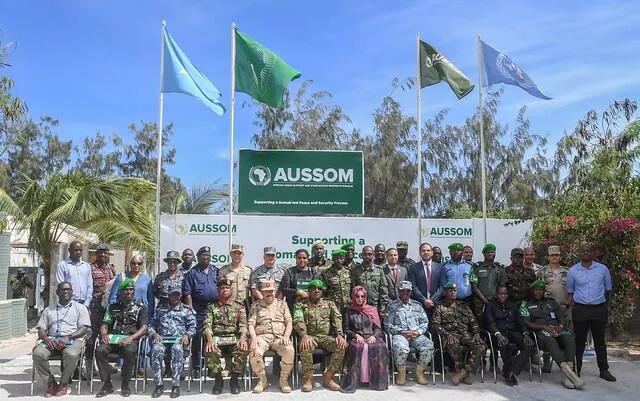

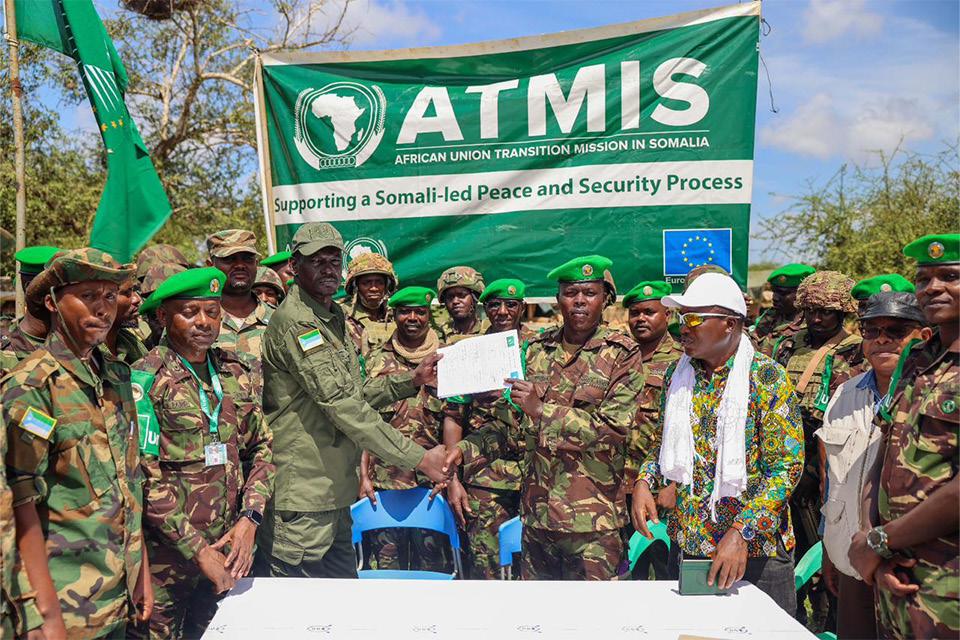
As the ATMIS mandate came to an end in December 2024, the need for a post-ATMIS security arrangement became evident. Despite the progress achieved under ATMIS, the Somali Transition Plan (STP) of 2018 did not unfold as envisioned. To prevent a security vacuum and safeguard the gains made, a new mission was authorised to ensure Somali forces received adequate support in maintaining security and stability.
On January 1, 2025, AUSSOM began its operations under UN Security Council Resolution 2767 (2024). With a five-year mandate running to the end of 2028, AUSSOM is tasked with replacing ATMIS, furthering the transition of security responsibilities to Somali forces, and supporting the Federal Government of Somalia in degrading Al-Shabaab and Islamic State in Iraq and the Levant (ISIL)linked affiliates.
AUSSOM comes in amid escalating regional tensions. A controversial deal between Ethiopia and Somaliland, granting Ethiopia access to a Red Sea port, has strained relations with Somalia. In response, the Somali government signed a defence pact with Egypt, resulting in the deployment of Egyptian troops and military equipment, further exacerbating tensions in the Horn of Africa.
Although both leaders reached a deal brokered in Ankara, Turkey by President Recip Tayep Erdogan to end the feud, the Somali government made it clear that
Ethiopian troops were not to be part of AUSSOM. The establishment of AUSSOM is a further step in addressing the evolving security landscape in Somalia.
However, unresolved challenges
all AU troops from ATMIS to AUSSOM. This transition raises critical concerns about whether the mission represents a genuine step forward in addressing Somalia's evolving security needs, or simply perpetuates the status quo under a new banner with fewer troops and smaller footprints.
AUSSOM inherits many of the challenges that plagued its predecessors. Funding remains a critical concern, with the mission relying on a hybrid funding model that includes contributions from the UN, AU and other international bodies. Additionally, unresolved disputes over troop contributions are further jeopardising AUSSOM’s ability to effectively maintain peace and security in Somalia, casting doubt on its potential to succeed.
To achieve success in peace operations in Somalia, it is imperative to ensure that missions are adequately resourced and shielded from regional tensions. The lack of substantial reform in the approach to the operation risks undermining the progress made and delaying the longoverdue empowerment of Somali forces to independently maintain national security.
A comprehensive strategy that
risk undermining stabilisation efforts and delaying the strengthening of local forces. The transition from AMISOM to ATMIS brought little substantive change in mandate, reflecting more of a rebranding exercise than a strategic overhaul.
The same troop-contributing countries remained, with the force gradually drawing down from 22,000 uniformed personnel in 2017 to 12,000 for the new AUSSOM. Similarly, the transition from ATMIS to AUSSOM appears to be a change in name rather than a shift in fundamental priorities, signalling continuity.
AUSSOM is authorised to deploy troops from Kenya, Uganda, Djibouti, Egypt and Ethiopia until June 30, 2025 and to complete by this date the realignment of
transcends military action is essential and should align with the Somalia Security Sector Development Plan. A political solution is vital for fostering political stability and governance in the region.
A coordinated approach that includes diplomatic initiatives to mitigate regional tensions, especially between Somalia and Ethiopia, is necessary to create a supportive environment for AUSSOM's operations.
A holistic approach is essential for the success of AUSSOM and the long-term peace in Somalia. This approach should integrate governance, social cohesion, humanitarian assistance, countering extremist ideologies, environmental sustainability and international cooperation.
In a world where divisions have too often hindered progress, the need for unity among Muslims has never been more urgent, argues Adama Dieng
ISLAM, from its very inception, emphasised fraternity, cooperation and solidarity among believers. Yet, history has witnessed moments where differences were exploited, leading to fragmentation and internal discord.
Rather than dissipating energy on disputes, Muslims must recognise the immense strength that comes from standing together. By embracing the diversity within the Ummah (the global community of Muslims) and focusing on common challenges – whether political, economic, or social – we can ensure that our collective efforts contribute to the prosperity and dignity of all.
In February, we witnessed a defining moment in the history of intra-Islamic relations in Bahrain. The call that had been made on November 3, 2022, at the Bahrain Dialogue Forum in Manama by Dr Ahmed Al-Tayeb, Grand Imam of Al-Azhar and Chairman of the Muslim Council of Elders, for dialogue among leading scholars of the Islamic Schools of Thought, primarily Sunni and Shia scholars, was finally translated into action.
The recent conference, convened under the theme, One Ummah... One Shared Destiny, saw leading religious figures from various Islamic traditions engage in deep and meaningful discussions, culminating in a concrete recommendation: the establishment of a group of experts to continue this vital reflection and ensure its practical application.
This initiative, made possible under the patronage of King Hamad bin Isa Al Khalifa, is a testament to Bahrain’s role as a bridge for reconciliation. Historically, Bahrain has been a land of coexistence between Sunni and Shia communities, though not without challenges.
Under the leadership of the King, efforts have been made to further foster inclusivity and recognise the rich diversity of the nation’s Islamic traditions. This dialogue represents a step forward in ensuring constructive management of

diversity across the Muslim world.
At the heart of this dialogue stands Ahmed Al-Tayeb, whose wisdom and courage in initiating such a conversation cannot be overstated. He has long championed the idea that the divide between Sunni and Shia Muslims and other Islamic traditions is artificial – more a result of historical and political manoeuvring than of theological divergence.
Indeed, as he noted in his address, nothing fundamentally differentiates a Sunni from a Shia in the eyes of Islam. His call for unity is not a call to erase differences but rather to embrace the shared principles that bind all Muslims.
He reminded us that the first constitution proclaimed by Prophet Muhammad in Medina reaffirmed the principle of non-discrimination. This historical precedent should serve as a model for contemporary Muslim societies grappling with sectarian tensions that have, in many instances, escalated into armed conflict.
Over the past decade, Sunni-Shia tensions have been exploited to fuel violence in different parts of the world. These divisions have allowed external forces to manipulate and weaken the
Muslim Ummah, turning brothers against each other while ignoring the fundamental principle of unity that Islam upholds. The dialogue in Bahrain is a courageous effort to move beyond these divisions and work towards collective healing and progress.
What sets this dialogue apart from past discussions on Sunni-Shia rapprochement is its commitment to action. The recommendation to establish a group of experts marks a shift from theoretical discussions to practical steps aimed at ensuring sustainable peace and understanding. This expert group will be tasked with developing frameworks to institutionalise intra-Islamic dialogue, foster religious tolerance and prevent sectarian conflicts from being instrumentalised for political gain.
In addition to religious leaders, the role of Muslim youth in shaping the future of unity cannot be overlooked. Young people across the Muslim world must be engaged in these discussions and initiatives. They are the ones who will carry forward the principles of fraternity, tolerance and collaboration. Educational curricula should include historical examples of successful coexistence between different Islamic traditions, emphasising shared values rather
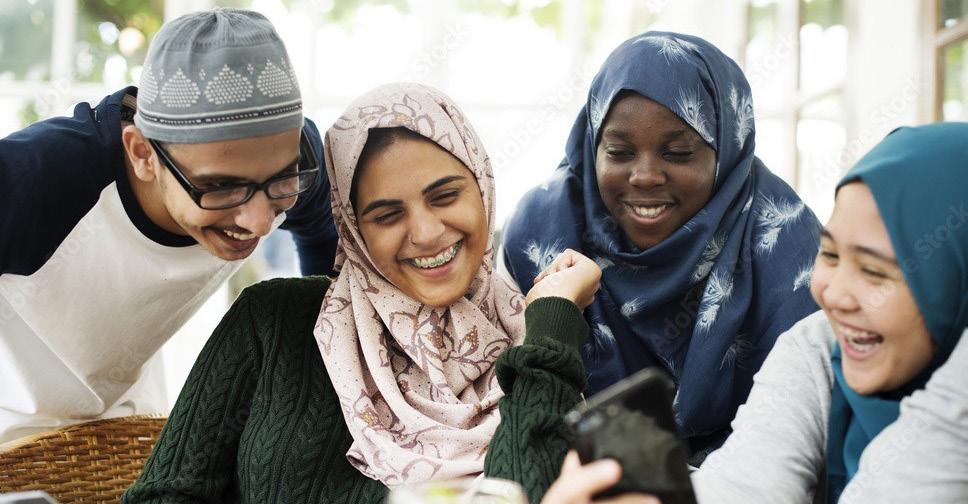
than points of contention.
It is imperative that this momentum continues. Governments, religious leaders and civil society organisations must invest in peacebuilding initiatives that promote mutual respect and understanding. Moreover, Islamic educational institutions should incorporate teachings that emphasise the shared heritage of all Muslim schools of thought rather than highlight their differences.
The diversity within Islam should be seen as a strength rather than a source of division. The Quran and the Sunnah
embrace the entire spectrum of Muslim communities worldwide. Whether African, Asian, Middle Eastern, or Western Muslims, all have unique experiences and contributions to offer. A united Ummah must not be limited to theological discussions alone but should extend to cooperation in economic development, scientific progress and humanitarian initiatives that uplift all Muslims and humanity at large.
The dialogue in Bahrain serves as a beacon of hope that Muslims can move beyond centuries-old divisions and work together for the common good. The shared
’
emphasise the importance of unity, cooperation and respect for one another. As the Grand Imam wisely pointed out, the priority must be to protect our religion, our lands and our people – regardless of sectarian identity.
Furthermore, intra-Muslim unity should extend beyond Sunni-Shia relations to
history, language, faith and cultural heritage of Muslims should serve as the foundation for a stronger, more united Ummah.
The Bahrain Intra-Islamic Dialogue conference marks the beginning of what could be a new chapter in the history of Islam. The establishment of a group of experts is a promising step toward
institutionalising reconciliation efforts. However, its success depends on sustained commitment from leaders across the Muslim world. We must all take ownership of this vision: governments, religious institutions, intellectuals and ordinary citizens alike.
If this initiative is to succeed, it must be followed by tangible policies and local initiatives in Muslim-majority countries. Mosques, universities and community organisations should actively engage in fostering dialogue and ensuring that the message of unity reaches every level of society. Dialogue must not remain an event confined to conferences but should become an ongoing process that shapes the consciousness of future generations. It is time to leave behind the divisions of the past and embrace a future where all Muslims stand together as one Ummah, guided by the principles of justice, equality and fraternity. The Prophet Muhammad’s teachings urge us to foster love and harmony among ourselves. In that spirit, the dialogue in Bahrain must not be an isolated event but the foundation of a lasting movement toward unity.
Only by standing together can we confront the challenges that threaten our communities and ensure that future generations inherit a world defined not by sectarianism but by solidarity and mutual respect.
Kenya’s diplomatic blunders and poor campaign strategy led to the country’s failure to get its candidate elected as the Chairperson of the African Union Commission, writes Martin Mavenjina
ON August 27, 2024, at an event full of pomp, Kenya announced that veteran politician Raila Odinga would be vying for the position of the Chairperson of the African Union Commission (AUC). This momentous occasion was graced by Presidents Yoweri Museveni of Uganda, Salva Kiir of South Sudan, Samia Suluhu of Tanzania and former Presidents Jakaya Kikwete and Olusegun Obasanjo of Tanzania and Nigeria respectively.
With the full support of the Kenya Kwanza political machinery and a neatly assembled team, Odinga campaigned throughout the continent with a promise of transforming the AU into a people-centred organisation through collaboration with every African leader. Following weeks of intensive campaign, Odinga arrived in Addis Ababa with a contingent of Kenyan politicians and a host of other senior government officials, including President William Ruto, for the highly anticipated election on February 15, 2025.
After trailing in the fifth and sixth rounds, Odinga dropped out of the race, leaving Djibouti’s Foreign Affairs Minister, Mohamoud Ali Youssouf, to contest as the sole candidate in the seventh round and securing 33 votes, more than enough to have him declared as the new AUC Chairperson.
What brought about the defeat of Odinga who was so confident of winning? In September 2022, Ruto, through a tweet, revoked Kenya’s recognition of the Sahrawi Arab Democratic Republic (SADR) and initiated the winding down of its diplomatic mission in Kenya, opting to strengthen existing economic ties with Morocco.
Kenya did not make any efforts to repair this diplomatic move that may have had an impact on how some allies of SADR voted. Secondly Israel, in its war against Hamas in Gaza that has resulted in close to
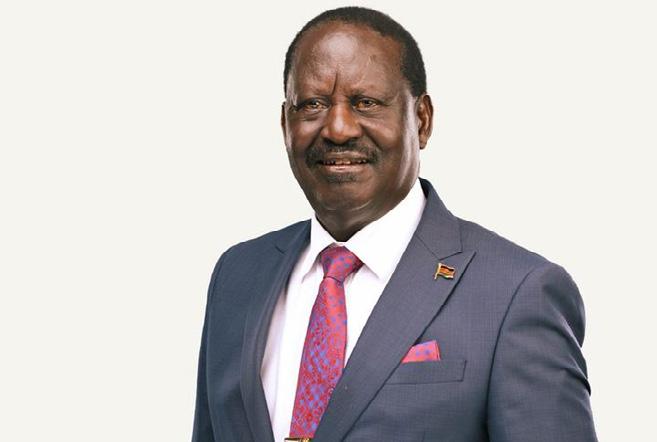
46,700 deaths including 18,000 children, received rare support from an unlikely source: Kenya. This decision to publicly stand in solidarity with Israel may explain why Southern African Development Community (SADC) members did not vote for Kenya’s candidate.
Thirdly, as part of the Nairobi Peace Process, Kenya and other East African partners had deployed the East African Community Regional Force (EACRF) in late 2022 to support the government of the Democratic Republic of Congo (DRC) against M23 rebels. The DRC accused the EACRF of avoiding combat with all rebel groups, including M23. Ruto expressed his reservations about the mission and in 2023, Kenya’s decision to host members of the M23 rebel group in Nairobi created diplomatic tension.
DRC President Felix Tshisekedi missed a series of EAC summits in 2024, blaming Ruto for the EACRF’s lack of resolve and further accusing him of siding with the Rwandan government.
The DRC refused to renew the mandate of the EACRF and sought alternative support from SADC. Burundi, Tanzania, Malawi and South Africa responded to the DRC’s request to deploy forces to the eastern part of the country, thus explaining why they voted against Kenya’s candidate
Kenya’s long-standing association with the Rapid Support Forces (RSF),
a rebel group in Sudan that the UN Independent Fact-Finding Mission found to have committed war crimes, including rape, sexual slavery, pillage and forced displacement of civilians, may have influenced some African member states to vote otherwise. Since January 2024, Ruto’s administration has hosted the RSF’s leaders on several occasions in Nairobi, a decision that created a diplomatic row between Sudan and Kenya.
The AU Peace and Security Council made up of African leaders met on February 13, 2025 and condemned all forms of external interference fuelling the Sudanese conflict, urging the warring parties to commit to an inclusive political dialogue to address the current crisis. Kenya’s continued association with the RSF resulted in a complete breakdown of diplomatic relationship with Sudan and may explain why some of Sudan’s allies voted against Kenya’s candidate.
Kenya failed to surround its candidate with experienced career diplomats, opting for an inexperienced team. This was further exacerbated by the loud nature of Kenya’s campaign that was riddled with various social media posts at each stop across the continent.
Furthermore, considering that this was Kenya’s second stab at the position, one would have expected Odinga’s team to have learnt some lessons from the failure in strategy during the campaign for Amina Mohamed in 2016.
Kenya’s dismal human rights record and continued partisan involvement in conflicts in and out of Africa did not help matters.
With a huge amount of taxpayer’s money spent on the AUC campaign, it is back to the drawing board for Kenya. Ruto’s government urgently needs to overhaul its diplomatic strategies and repair its fragile relationship with other countries.
Martin Mavenjina is a Constitutional and Human Rights lawyer. He is currently employed at the Kenya Human Rights Commission as Senior Programme Advisor, Transitional Justice.
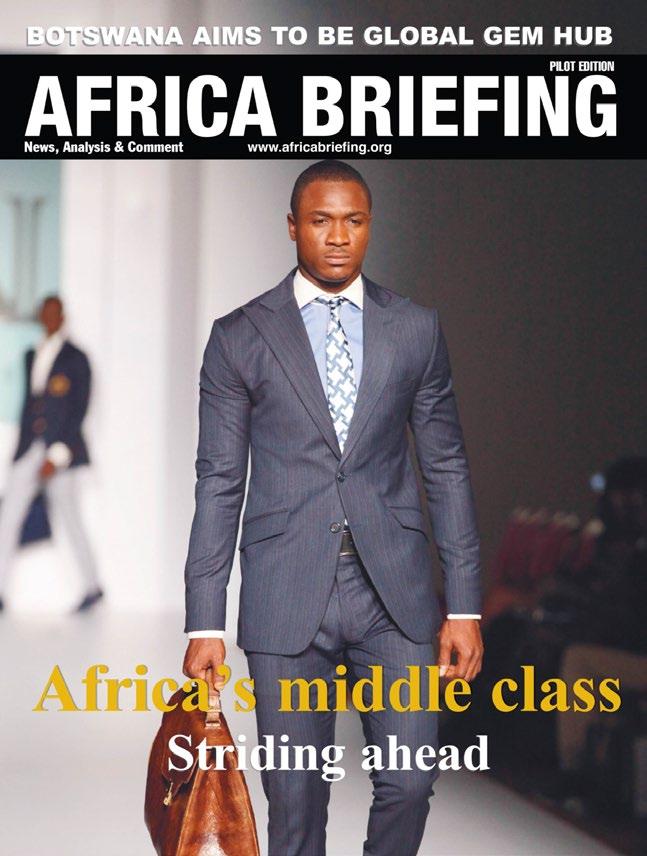
For in-depth analysis on developments in a fast-changing continent
Testimonials from some of our online subscribers:
We wish to compliment the Africa Briefing Magazine for its insight and value added stories from the Last Frontier. From a Scandanavian view the quality of material presented on time gives us the edge for investment and business purposes. Keep up the good work. Jon Marius Hoensi MD Marex Group, Norway.
I write in conjunction with JIC Holdings and its CEO, Mark Anthony Johnson, to commend Africa Briefing on its coverage of the important political, economic and social news and events in Africa. Its coverage of a wide range of topics is very impressive. I look forward to future editions. David W Gouldman, Consultant, JIC Holdings, United Kingdom.
News, analysis and forecast
Africa Briefing is an interesting new project. The publication helps fill the gap in business and economyfocused African journalism. Africa Briefing combines a good news sense with crisp copy to the reader rapid immersion into what is important in economies across the continent. James Schneider, Editorial Director, New African Magazine, London, UK
2 Redruth Close, London N22 8RN, United Kingdom
Phone: +44 (0) 208 888 6693

Nkanyiso Gumede and Ruth Hall analyse the country’s ongoing land reform policy in line with the 2025 Budget, which is a response to the recent signing of the Expropriation Act
BUDGET allocation is one measure of the South African government's commitment to deliver on its obligation to enact land reforms such as redistribution, restitution and tenure. The government makes resources available to the Minister of Land Reform and Rural Development to fulfil its mandate to implement the reforms.
The department’s budget has always been below one per cent of the total national expenditure, with the exception of the two years from 2007 to 2009 when it peaked at 1.09 per cent. These are also the same years when land delivered through both restitution and redistribution came close to one million hectares a year.
In general, land reform has received less than one per cent of national expenditure, with the exception of the years 2007/8 and 2008/9, during the height of government funding, and the peak of land delivery.
The Commission on the Restitution of Land Rights facilitates the return of ancestral land to those who were disposed of their property after June 19, 1913 due to racially discriminatory laws or practices. To achieve land restitution, the government allocates a budget to the Commission to buy land, pay financial compensation and to provide grants to enable settlement and land development.
This time last year, the budget for restitution declined by 11 per cent, and the year before that by eight per cent. This year, the restitution budget has grown by just under five per cent, a slight recovery, but is still lower than pre-covid levels in real terms. The budget is now less than half of what it was at its peak in 2007/08.
The budget for the land redistribution
programme has been in decline since 2012/13. This has also been reflected in the number of hectares acquired for land redistribution. In 2011/12, 392,000 hectares were redistributed, whereas in 2023/24, only 67,376 hectares were reallocated.
Both budget lines - restitution and land reform (including land redistribution and tenure reform) - are in long-term decline and have more or less stabilised at levels equivalent to those of about 20 years
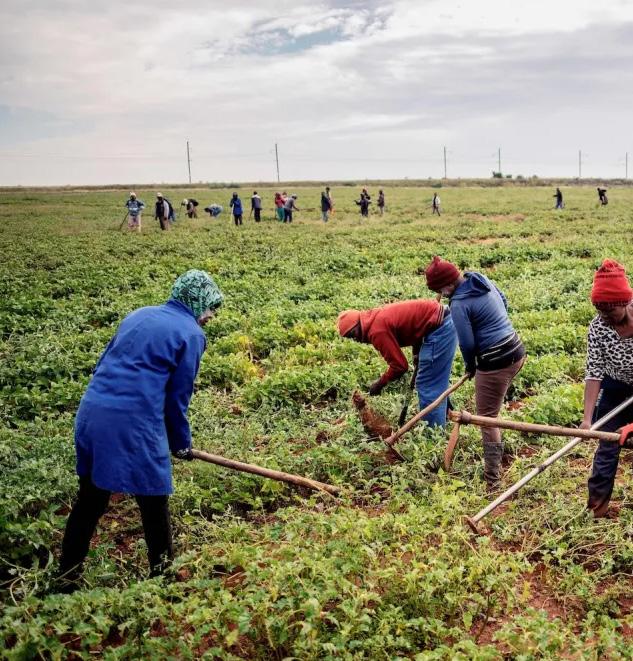

ago. This is far more illuminating than the Treasury’s announcements of “increased allocations”, which do not take into account inflation.
Through all aspects of land reform combined, official statistics from successive Annual Reports show that just under 9.5 million hectares have been transferred. This constitutes 11 per cent of commercial farmland. Land transfers can also be seen as going through shifts across different administrations.
The original target in 1994 was to transfer 30 per cent of land through land reform and was an arbitrary figure. Nonetheless, it is clear that just over one-third of this has been redistributed or restituted in the 28 years from 1996 to 2024.
If current trends were to continue - with buying land at market price and with the kinds of budget increases we are seeing - it would take 48 more years from now to reach the original 1994 target to redistribute 30 per cent of commercial farmland. But
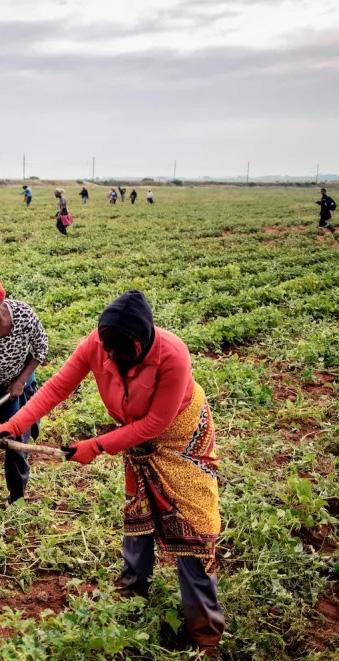
hectares do not tell us much about the real social value and impact of redistributing land.
Far more important than pushing up hectares is acquisition and redistribution of strategically-located land to meet urgent
minority share in it. This means figures can be seriously misleading, inflating the amount of land counted as transferred, which was never transferred.
• Strategic partnerships: land is transferred, but the claimants or
urban and rural needs and to resolve claims. With the constrained budget, the government should not be buying up big farms at market price, but re-orient itself to buying, negotiating for and, where necessary, expropriating properties in the places where land is urgently needed: in and around towns and cities to underpin urban agriculture, small business and other livelihood opportunities; around the communal areas where livestock owners and small farmers need more land; and in those parts of the country where farm workers and dwellers need land of their own, especially those who have been evicted.
There are several reasons why the data we present here should be critically interrogated. Overall, our research over the years informs the view that the real scale of land reform is substantially less than the official data.
We give five reasons why land reform statistics do not reflect the full picture.
• Inferring hectares: hypothetical amounts of land that were not in fact transferred, but where equity was bought in a business. From our studies, the entire area of a farm would be cited as ‘transferred’ if a worker trust acquired a
beneficiaries cannot move on to the land, or make land use decisions. Bestcase: rental income, often along with displacement of farm jobs to some of the claimants,
• Land in, land out: when the state sells land and purchases land without reference to whether or not the land is actually allocated to people on secure terms, there’s a risk of double-counting.
• Land reform reversals: the figures we present do not account for reversals in land reform - such as repossession of redistributed land by the Land Bank and commercial banks - following debt default. We know that repossessions have occurred, but there is no publicly available information about the scale. Further, reversals in the form of distress sales are not evident.
• Data management: there have also been errors in this area. At times, when we have dug into provincial project lists and reported statistics, we have found anomalies, with cumulative totals suddenly dipping, and wrong decimal places skewing figures. Some of the more significant errors we picked up in the past appear to have been resolved now.
Nkanyiso Gumede and Ruth Hall are researchers at the Institute for Poverty, Land and Agrarian Studies (PLAAS), an independent Policy Research Institute within the Faculty for Economic and Management Sciences at the University of the Western Cape for which they wrote the above policy brief.
Jon Offei-Ansah reports on how 2025 marks a pivotal moment for Africa’s rare earth minerals sector, with the continent on track to supply 10 percent of global demand by 2030
AFRICA is no longer on the sidelines of the rare earth minerals revolution. The continent is entering the global supply chain with bold new projects, and 2025 is the year it all kicks off. Major mines in Malawi and South Africa are starting production, and experts say this marks the beginning of a new era in Africa’s mining story.
According to In On Africa (IOA), a leading Johannesburg-based research and advisory firm, the continent is poised to supply 10 percent of the world’s rare earth minerals within five years — up from less than 1% in 2020.
“Africa has vast untapped reserves of rare earths and other critical minerals,” IOA noted in a recent analysis. “With the right policy frameworks, investment and infrastructure, the continent could be a dominant player in global supply chains by 2030.”
Rare earth minerals — though common in the Earth’s crust — are rarely found in concentrated deposits that are easy to mine. That’s why they’re considered rare. China currently dominates the market, producing over 70 percent of global supply and refining 90 percent of it.
Africa, however, is rich in these minerals. According to IOA, Southern Africa in particular holds significant concentrations, and with operations like Malawi’s Songwe Hill and South Africa’s Steenkampskraal going online this year, the continent is finally moving to harness this potential.
These minerals are indispensable to 21st-century technologies. From mobile phones and electric vehicles to MRI machines and fighter jets, rare earths power
the tools of modern life. Their role in green energy — enabling wind turbines, solar panels and EV motors — makes them central to the global transition from fossil fuels.
IOA analysts point to a key moment in December 2024 when China restricted exports of certain rare earth-based products to meet its surging domestic demand, driven in part by its booming robotics sector.
“The global market reacted immediately,” IOA said. “Prices began to stabilise after a volatile 2023, and this creates a favourable climate for African
producers just entering the field.”
In January 2025 alone, rare earth prices rose 2 percent. At the same time, demand is forecast to quadruple by 2030, largely due to increased production of renewable energy technologies.
In a sign of what’s to come, eight major new mining operations across Angola, Malawi, Tanzania and South Africa are set to start production by 2029. These mines alone could contribute 9 percent of global supply.
Africa is sitting on a treasure trove. The continent hosts about 30 percent of

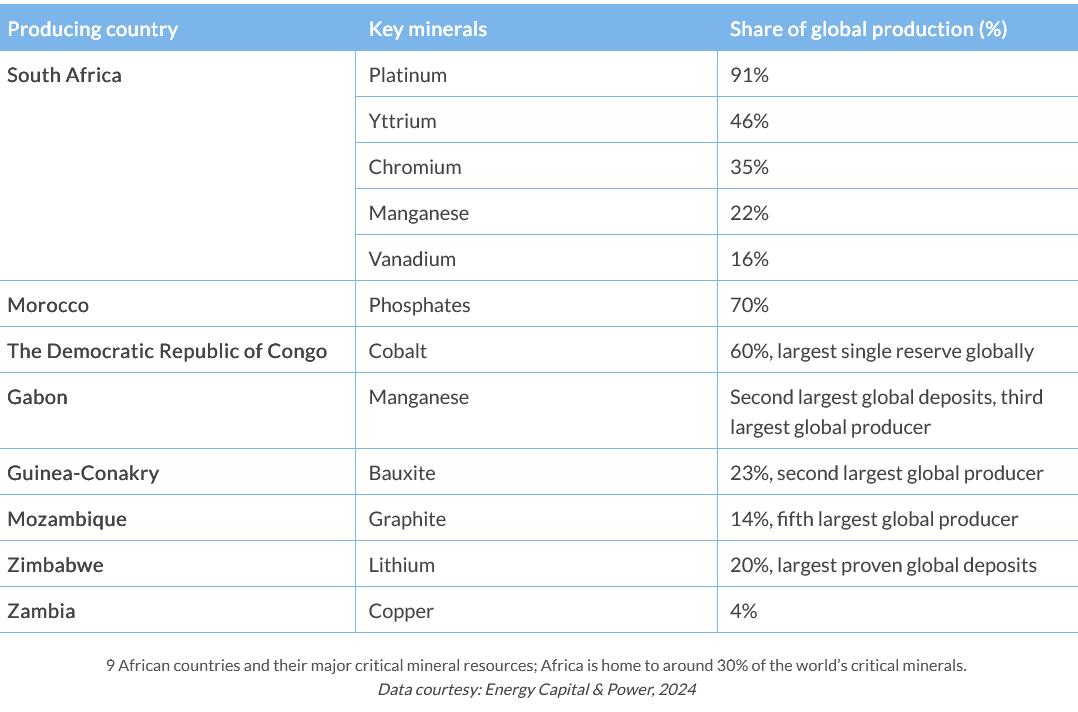
the world’s reserves of critical transition minerals. South Africa leads global production in platinum (91 percent), yttrium (46 percent) and chromium (35 percent). The Democratic Republic of Congo holds the world’s largest single cobalt reserve, while Zimbabwe boasts the biggest verified lithium deposits.
Yet, IOA warns that Africa still captures just 40 percent of the potential revenue from these resources.
“Too many of these minerals are exported raw and unprocessed,” IOA stated. “There’s a clear opportunity to shift towards local refining and manufacturing to retain more value on the continent.”
That shift has already begun. Zimbabwe famously banned the export of raw lithium in 2023, requiring foreign buyers to process it locally — a bold move that could serve as a model for others.
African leaders are now turning their attention beyond extraction. The goal is to move up the value chain by investing in local refining and manufacturing capacity.
“The continent has long been seen as a source of raw materials,” IOA noted. “But that’s changing. There’s growing political will to keep more of the value here, from minerals to final products.”
The African Continental Free Trade Area (AfCFTA) offers a framework for intra-continental collaboration — one where nations pool resources and expertise to manufacture products such as electric vehicle batteries or solar modules within
Western governments are also showing renewed interest. Eager to reduce dependency on Chinese supply chains, both the EU and the US are keen to support African countries in developing rare earth refining and end-use manufacturing.
While China remains Africa’s largest trade partner, not one of the eight major new rare earth mines in Africa is Chineseowned. Instead, firms from the UK, Canada and Australia are leading the charge.
Mkango Resources (Canada) is advancing operations in Malawi, while Pensana PLC (UK) is developing a mine in Angola. Rainbow Rare Earths, also UK-based, is active in Burundi. Australia’s Lindian Resources will start producing in Malawi in 2025, followed by Ionic Rare Earths in Uganda in 2026.
IOA observed: “This Western investment wave reflects not just market opportunity, but geopolitics. The West sees African rare earths as key to reshaping
global supply chains.”
The economic impacts will extend far beyond the mines. IOA expects substantial job creation in support sectors — from logistics to refining to maintenance — as well as large-scale infrastructure upgrades.
“We’re talking about new roads, rail lines and energy systems to support mining operations,” IOA stated. “This will create long-term jobs and build up industrial capacity in surrounding regions.”
These infrastructure investments could ripple outward, lifting entire economies and helping reduce Africa’s dependence on raw mineral exports.
Despite the optimism, experts caution that market volatility could disrupt progress. For instance, a temporary surplus of neodymium praseodymium oxide — used in high-powered magnets — has led to a drastic projected production drop in 2025. Output is expected to fall from 5,400 tonnes in 2024 to just 500 tonnes this year, even as demand from the EV and wind energy sectors grows by 15 percent.
“This kind of mismatch between supply and demand can destabilise markets and erode investor confidence,” IOA said. “African producers will need accurate forecasting and better coordination to avoid such pitfalls.”
Africa’s rare earth story is no longer about potential — it’s about performance. The coming five years could transform the continent’s place in the global economic order, not just as a supplier of raw materials, but as a hub of industrial innovation.
IOA says: “We’re at the beginning of a rare opportunity. If African leaders stay focused on beneficiation, local industry and infrastructure development, this could be a defining decade for the continent’s economies.”
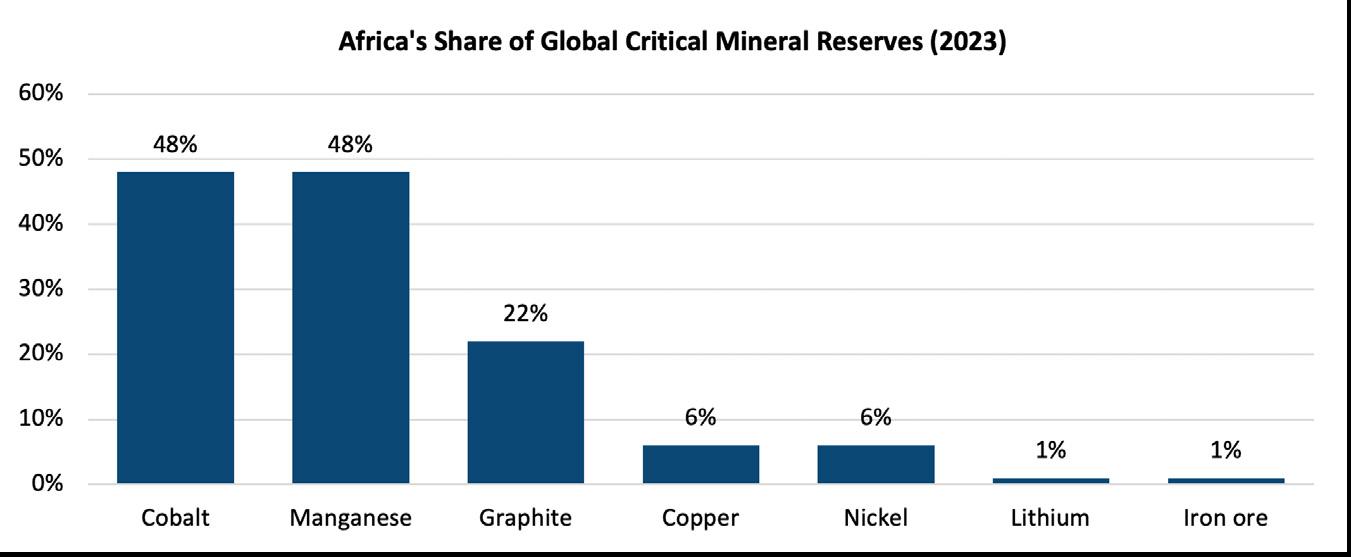
DONALD Trump’s return to the White House has sent ripples across the globe, but nowhere are the aftershocks more potentially transformative than in Africa’s fossil fuel sector. Within weeks of taking office, President Trump reinstated a previously frozen $4.7 billion loan from the US Export-Import Bank (Exim) to support TotalEnergies’ liquefied natural gas (LNG) project in Mozambique — a decision blocked for four years under the Biden administration.
That single action, according to NJ Ayuk, Executive Chairman of the Africa Energy Chamber (AEC), could mark the start of a new golden age for Africa’s oil, gas and coal industries — if African governments are bold enough to act.
“This is our window,” Ayuk says. “The Biden administration sidelined African fossil fuel projects in the name of the energy transition. President Trump has done more in four weeks than Biden did
in four years. He’s showing that American energy investment in Africa is back on the table — and Africa must take full advantage.”
The Mozambique LNG project was initially greenlit during Trump’s first term. But when Joe Biden took office in 2021, his administration refused to release the funds, citing climate concerns and broader opposition to financing fossil fuels overseas. The AEC, among other African energy stakeholders, repeatedly called for the release of the funds — to no avail.
“We were stuck,” Ayuk says. “Security in northern Mozambique had improved, the business case was solid, but the political will in Washington just wasn’t there.”
Trump’s immediate reapproval of the loan has not only revived the Mozambique project, it has reawakened optimism across Africa’s energy corridors. From Nigeria to Namibia, Senegal to South Africa, industry players are eyeing a wave of renewed US engagement — not in lectures about green
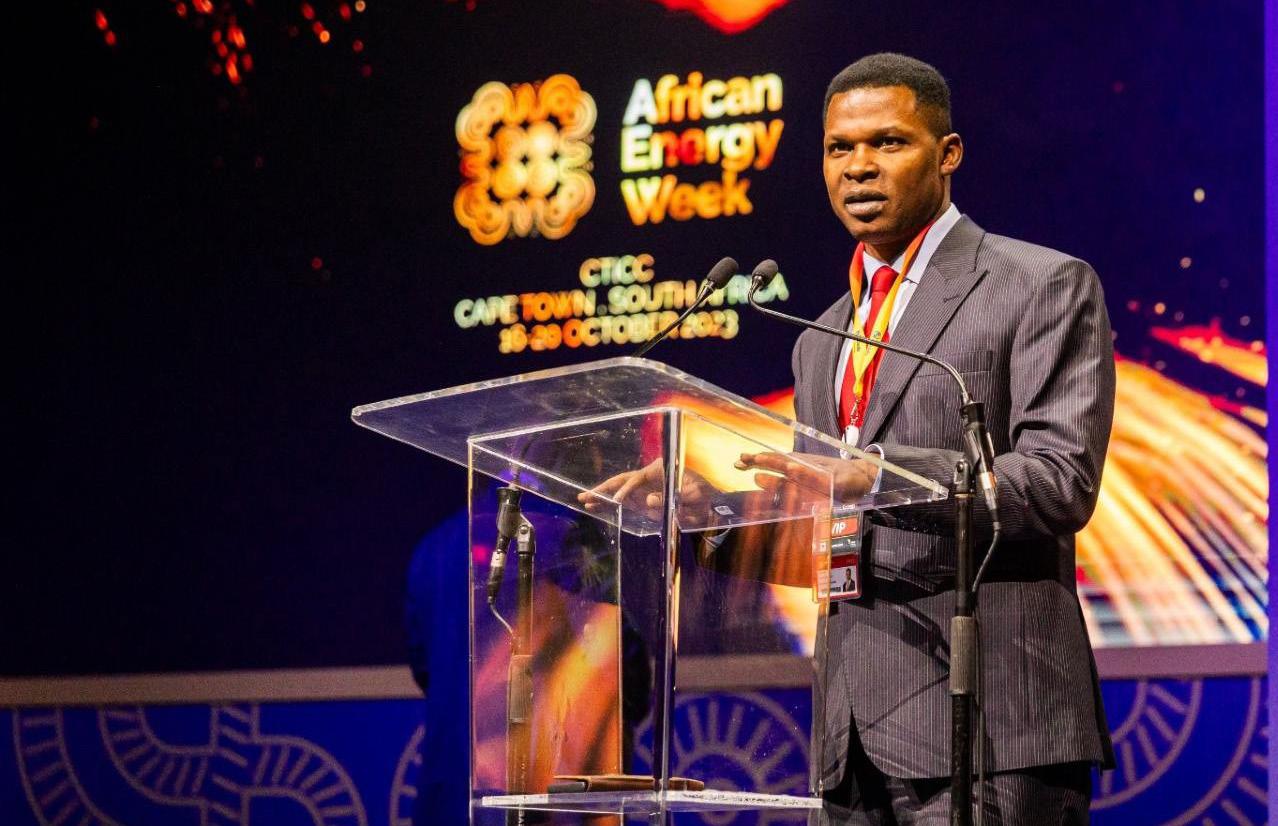
energy, but in dollars and deals.
The AEC has long argued that fossil fuels are not the enemy in Africa — energy poverty is. While renewables play an important role in the continent’s energy future, Ayuk insists that oil, gas and even coal remain essential tools for achieving industrialisation and electrification.
“Africa contributes less than 4 percent of global emissions,” he says. “Yet we’re told to abandon our resources while the West gets rich on theirs. That’s hypocrisy. We need to lift our people out of poverty before we worry about someone else’s climate agenda.”
He continues: “We must stop apologising for developing. Africa needs an ‘Africa First’ energy policy that prioritises economic growth, job creation, and reliable power. Fossil fuels make that possible.”
Ayuk is particularly vocal about Africa diversifying its fossil fuel approach. Beyond the massive offshore LNG projects, he wants governments to focus on high-risk, high-reward wildcat drilling and untapped onshore fields.
“We’ve been too dependent on the big multinationals and offshore giants,” he says. “The future lies in empowering small operators, indigenous firms, and ambitious explorers. Trump’s deregulatory stance in the U.S. can be a model for Africa — slash the red tape, provide fiscal certainty, and let entrepreneurs lead.”
He highlights Nigeria’s long-delayed Petroleum Industry Act (PIA) as a cautionary tale. Proposed in 2008 but not signed until 2021 — and still slow to implement — the PIA represents what Ayuk calls “death by bureaucracy.”
“We need to move faster. Investors aren’t going to wait for us to get our act together. Trump’s re-election gives us four years of breathing room. We must use that
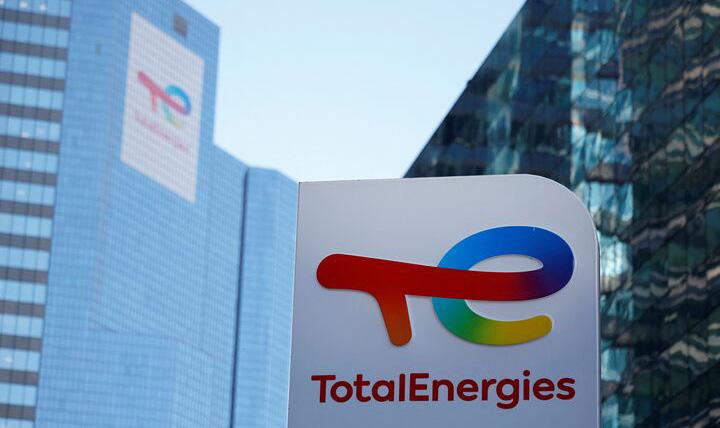
time wisely.”
While the West continues to decry coal, Ayuk says African nations should reconsider its strategic value — especially given Trump’s embrace of clean coal technology in his domestic agenda.
“Coal is affordable, abundant, and does not need massive foreign financing,” Ayuk says. “For countries with limited access to base-load power, coal can be a lifeline.”
He argues that Trump’s dismissal of climate orthodoxy offers political cover for African governments to revisit coal without fear of Western retaliation.
“This is our moment to reopen coal mines, invest in clean technologies, and power our economies. Africa should be the last man standing when it comes to coal — unapologetically.”
The AEC is calling on all African energy-producing nations to adopt an “Africa First” version of Trump’s “drill baby drill” mantra.
“It’s not about being reckless,” Ayuk clarifies. “It’s about being ambitious. We need to explore every barrel, tap every reserve, and unleash every megawatt of power we can produce. This is how we grow. This is how we lead.”
He notes that Africa’s untapped potential is staggering — from offshore gas in Senegal to onshore oil in Uganda
and frontier exploration zones in the DRC, Kenya and Somalia.
“We can’t afford to waste another decade. The capital is there. The markets are hungry. And for once, the political winds in Washington are in our favour.”
Critics argue that embracing fossil fuels undercuts global climate goals. Ayuk rejects this framing outright.
“It’s not fossil fuels versus renewables. It’s fossil fuels plus renewables, in the right order,” he says. “We need to power our homes, our schools, our hospitals today. Let us industrialise first. Then we can transition from a place of strength.”
He also insists that Africa’s green ambitions remain intact — just not at the cost of development.
“We’re not climate deniers. We’re realists. Africa’s path to net zero will not be a copy-paste of the West’s. We have to chart our own route.”
The opportunity presented by Trump’s presidency, Ayuk says, won’t last forever. African leaders must act with urgency and vision — not just to attract US investment, but to finally unlock the continent’s own wealth.
“This is about sovereignty. About standing up and saying: we are open for business — on our terms,” he says. “If we
don’t act now, we may be waiting another generation for this kind of alignment.”
To that end, Ayuk urges governments to:
• Streamline regulations for energy companies
• Tackle security risks head-on to protect investments
• Create fiscal terms that incentivise exploration and local content
• Back small operators and indigenous firms with financing
• Reopen coal sectors with clean technology support
• Push for gas monetisation and infrastructure investment
“Africa needs leaders who will stand up to the anti-carbon lobby,” Ayuk declares. “Leaders who will say: our people come first, our development comes first, and we will not apologise for using the resources God gave us.”
With Trump back in the White House, a new chapter is possible — one where Africa leads not from the sidelines, but from the frontlines of global energy.
”This is not just about fossil fuels,” Ayuk says. “It’s about freedom. Freedom from poverty. Freedom to grow. Freedom to decide our own destiny.” AB
Desmond Davies reviews a book by a renowned Nigerian author that attempts to throw a different light on thorny issues surrounding his county’s chequered history
Culprits: The People and the Paper that Made Nigeria, by Dele Ogun; Lawless Publications £20
DELE Ogun is a prolific writer. His latest book, Culprits, is his eighth. It is about the manner in which Nigeria was cobbled together by the British colonialists that has left the country floundering since its independence on October 1, 1960.
For many Nigerians, their country has always faced an existential threat as an independent nation. The various Nigerian governments, both civilian and military, have had to tackle armed conflicts within the country, which many clearly see as the only way that citizens can make their feelings known to their leaders.
In Nigeria today, the democratic process moves in fits and starts; ethnic divisions are rampant; the economic situation is touch and go. In essence, Nigeria, for many of its citizens, is an unwieldy contraption that is struggling to stay together as one unit.
But for the casual observer, it is a case of Nigerians being unable to govern themselves; of a country that is steeped in fraud. But Ogun begs to differ. He lays the blame for this dysfunctional state on the haphazard way in which Britian “amalgamated” the Northern and Southern Nigeria Protectorates in 1914 to create the current state of Nigeria.
He contends that Nigeria “was birthed with fraud, as its birthmark by this mercenary company [the Royal Niger Company] emerges in part from the House of Commons [British parliament] on July 26, 1889…” The date centred on legislation granting the government power to take control of the entity that was Nigeria from the Ryal Niger Company to make it a British colony.
But, as Ogun points out, the figure of £865.000 that the British government was to pay to the Royal Niger Company was disputed. Joseph Chamberlain, who was Secretary of State for the Colonies, asked for the amount to be deleted, as it did not add up, during the parliamentary debate on the amendment Bill.
After much rigmarole about the shares
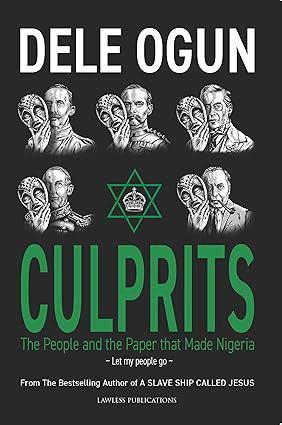
of the company, Chamberlain said: “The paid-up capital of the company can be roughly set down at £160,000. That is the total amount of the actual cash paid up, and now we are asked to pay the company over £600,000 for the amount. It seems a somewhat large order, and one that requires careful consideration…”
For Ogun, this was a clear case of a fraudulent transfer of control of “Nigeria” to Britain. He notes: “Thus, even the contract for the takeover of this ready-made and cheaply made great empire which was then named ‘Nigeria’ was far from transparent.”
Ogun is also scathing of the Royal Niger Company’s mandate over “Nigeria” from 1886 to 1899, noting: “The Royal Niger Company was a private military company, very much like the Wagner Group used to fight the Ukraine War, only that it was much more than an outsourced army; it was a colonial government by subcontract. It had its own courts. It even had powers to make treaties and to declare war on those who refuse to make treaties.”
Ogun takes the reader from 1900, when Britain officially took control of Nigeria, to the present. As an experienced
“trial-lawyer-turned-historian”, he is very diligent in laying out his case in challenging non-African historians who have contrived to maintain narratives about Nigeria that he sees as far removed from historical perspectives. Many Nigerian thinkers tend to agree with him.
For instance, he looks at the divisive nature of the Berlin Conference of 18841885 that led to the partitioning of the African continent by the main colonial powers: Britain, France, Portugal, Spain, Belgium and Italy. Indeed, for someone like Ogun, this arbitrary act by Europeans now needs to be redressed in order to reduce the conflicts and tensions on the continent today.
In Culprits, he lists 371 ethnic groups that have been lumped together into Nigeria, noting that several attempts to come up with Constitutions to unite these groups have failed. He debunks the 1999 Constitution, which notes that Nigerians had “solemnly resolved to live in unity and harmony as one indivisible and indissoluble sovereign nation…”
He argues that Nigerians had agreed to no such thing. “Despite the audacious claim in this Preamble, the 1999 Constitution had been produced in precisely the same way as the Richards Constitution of 1946: in seclusion, and without any constitution or public involvement.
“It marked the completion of a 100year unvirtuous cycle, from unaccountable and personalised unitary rule of Brigadier General Frederick Lugard from 1889, round to General Olusegun Obasanjo in 1999.”
In all this, does Ogun want “Nigeria” to go back to its pre-colonial borders to accommodate those 371 ethnic groups? It would seem so, going by his Fatherland Group, which is now calling for such a split. I think, however, this would be a big ask. But with Nigeria, you never know.
Nevertheless, in this day and age, when there is fierce resistance from Western academics and media to Africans telling their own story from their own perspectives, many would do well to read Ogun’s excellent historical narrative of the creation of “Nigeria”.

